Time out in Tbilisi
Georgia, I had heard, is a cycle tourist’s dream country. Everyone who spoke of it sang its praises. The lush, hilly landscapes, the mountains of carb-rich, tasty food, the legendary hospitality, the beautiful women. Georgia had a lot to live up to and I was eager to dive in and see how the reality compared to the hype. First stop: Batumi, Georgia’s gateway city on the Black Sea. Coming across the border from Turkey, the contrast was immediate – Batumi is an odd attempt at creating a high-rollers’ resort, with casinos, Las Vegas style shows and a bizarre mish mash of architectural styles. The place was tidy and friendly, but not exactly what I had been hoping for from Georgia. I spent one night in Batumi hostel, along with Gary, who I’d bumped into a couple of days before in the last miles of Turkey, and Mike, visiting Georgia from San Francisco. Our introduction to Georgian cuisine came in the form of an enormous Acharuli Khachapuri – a sort of bread boat filled with molten cheese, two fried eggs and half a slab of butter floating on top (which for some reason I cannot pronounce except to the tune of the opening bar of Art Blakey’s Moanin‘). For hungry cyclists it is immense. For anyone else it is a stent on a stick.
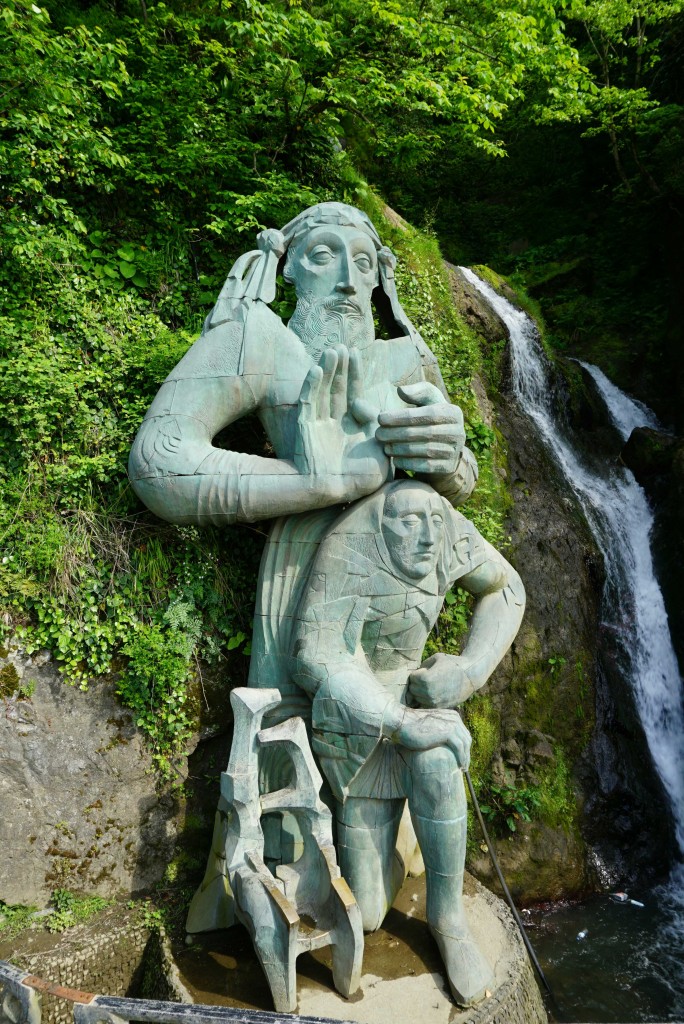
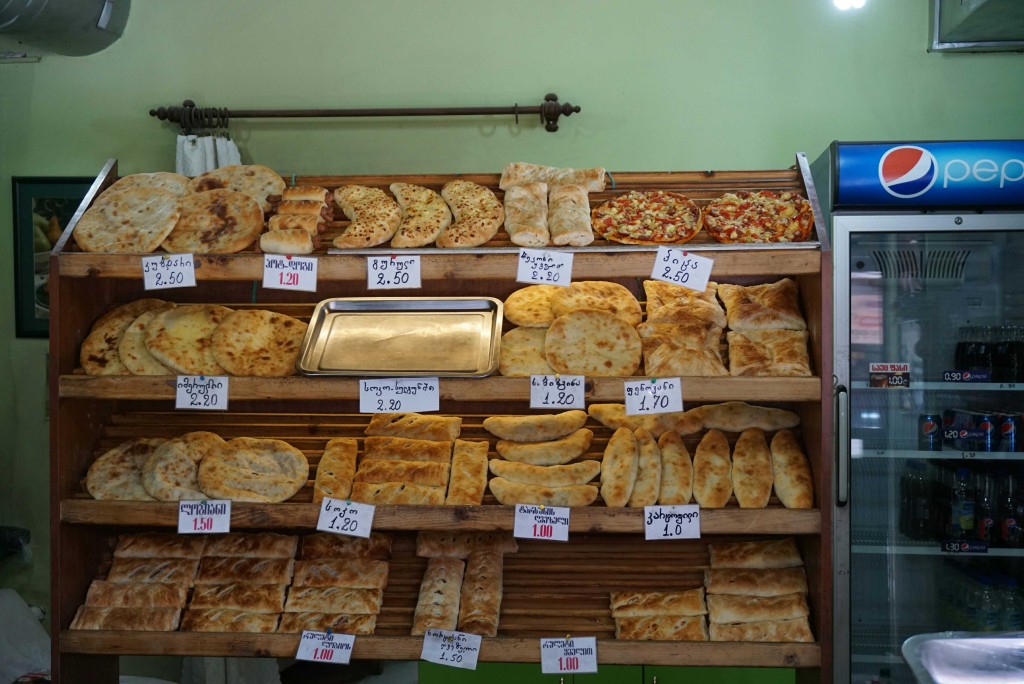

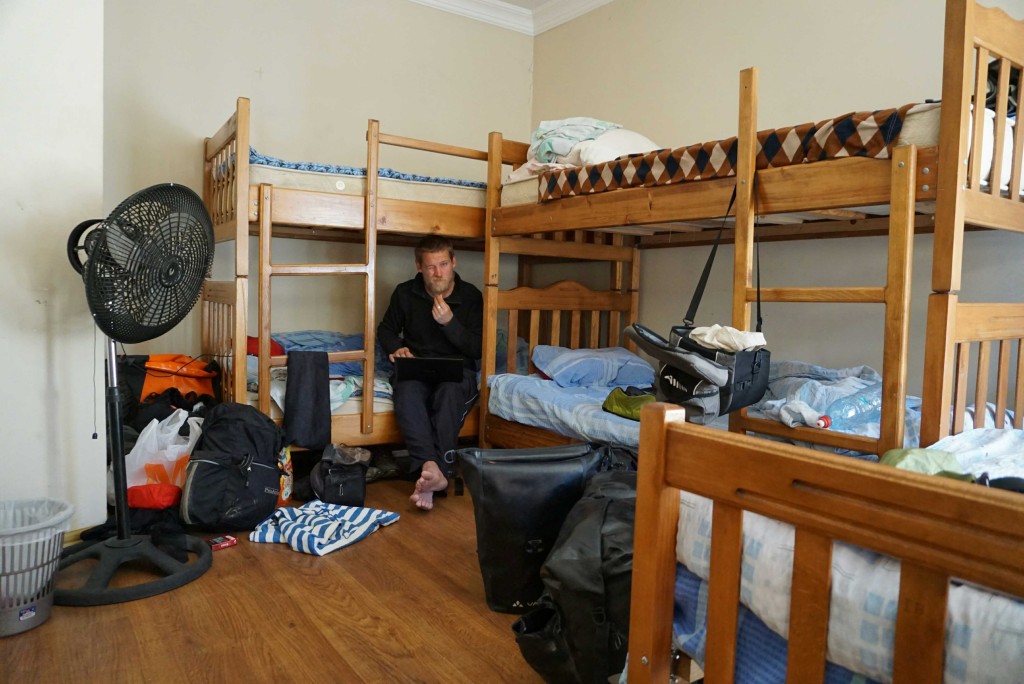
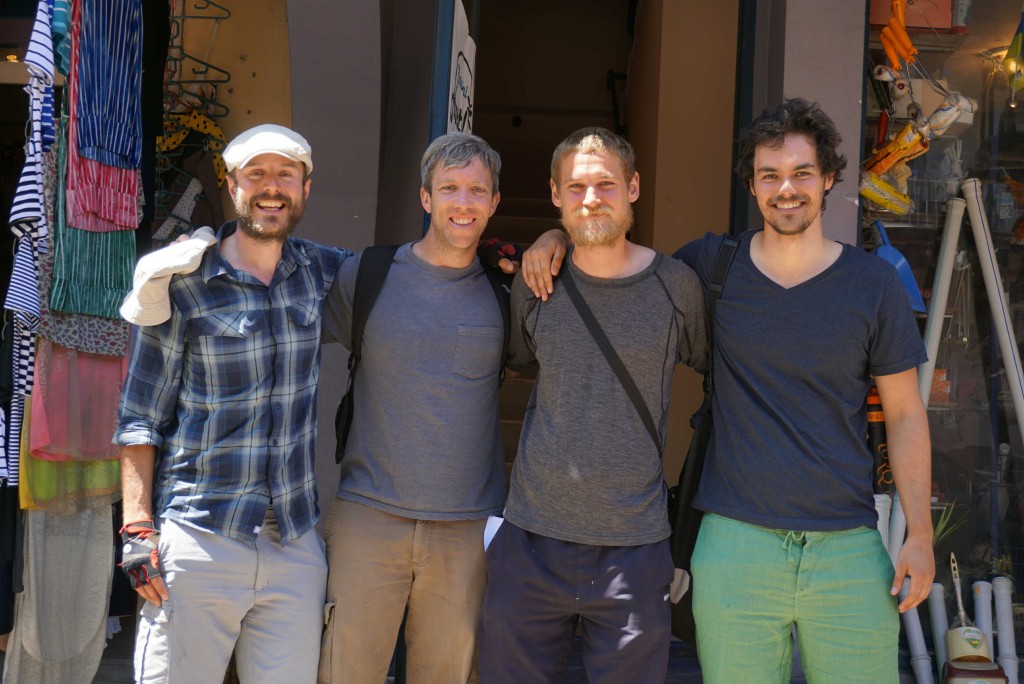
After the usual new country drill of acquiring currency, food, sim card, I texted my ETA to my Couchsurfing host in Tbilisi (four days for 400km I reckoned) started making my way east. Gary and Mike suggested that the obvious flatter northern route via Kutaisi was a fast road plied by dangerous drivers and marshrutkas (the ubiquitous mini buses), so at the last minute I switched tack and opted for the Goderzi Pass from Batumi, via Khulo and Adigeni to Akhaltsitke. The countryside east of Batumi soon became Alpine in character, tumbling rivers in deep gorges, forrested mountainsides and tan coloured cattle wandering aimlessly on the road everywhere. For seven hours I climbed quickly and fell under a delusion that I must soon be nearing the top of the pass. Guess again. Pausing for a breather, I checked the map and realised that I still had more than half of the two vertical kilometres of ascent to climb.
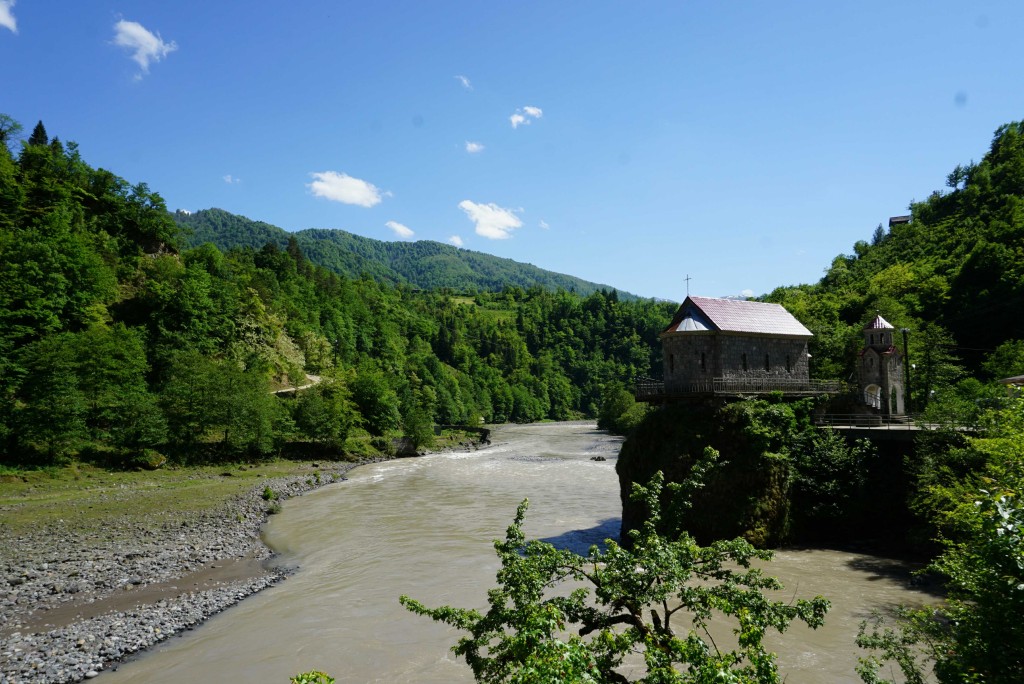
Arriving around dusk in the town of Khulo I noticed a small crowd at the roadside, centred on a rather bemused looking Argentinian couple and their heavily loaded touring bikes. Also amongst the small throng of villagers were a Japanese backpacker and American schoolteacher. I introduced myself to the assorted gathering and waited to see what happened. One of the village elders was trying to explain that it was not a good idea to camp any higher up the road as the woods were full of all kinds of terrors, wolves and bears. As exciting as that sounded, I decided that his suggestion that we all camp in the village football stadium offered a much more sociable and immediately attainable solution to that night’s accommodation conundrum. And so it proved. Once the neighbouring kids had marvelled at the compact ingenuity of evey piece of equipment that I conjured from my panniers and then ridden my bike around the football field ten times, Oscar and Patricia, Zono, John and I chatted over bowls of pasta and several litres of local wine. To my astonishment, Oscar and Patricia explained how, as Argentinians, they are unable to take any cash out of their home country, even via ATMS abroad. On the road for two years now, they can only use their bank cards to pay in shops, obtaining cash only by persuading other shoppers to allow them to pay for their goods in exchange for currency. The real sting is that Argentinian government levies a 30% tax on every transaction. This was a new dimension to the bureacratic headaches faced by long term overland travellers that I had never even imagined. Despite naturally resenting the tax, Oscar and Patricia seemed to take it in their stride. Their stoical attitude was presumably honed daily, for in addition to the usual panniers of camping and cooking gear, Oscar’s trailer was topped off with a cello (in a case, obviously), while Patricia’s rear rack was piled high with three dry bags and a guitar (also plus case).
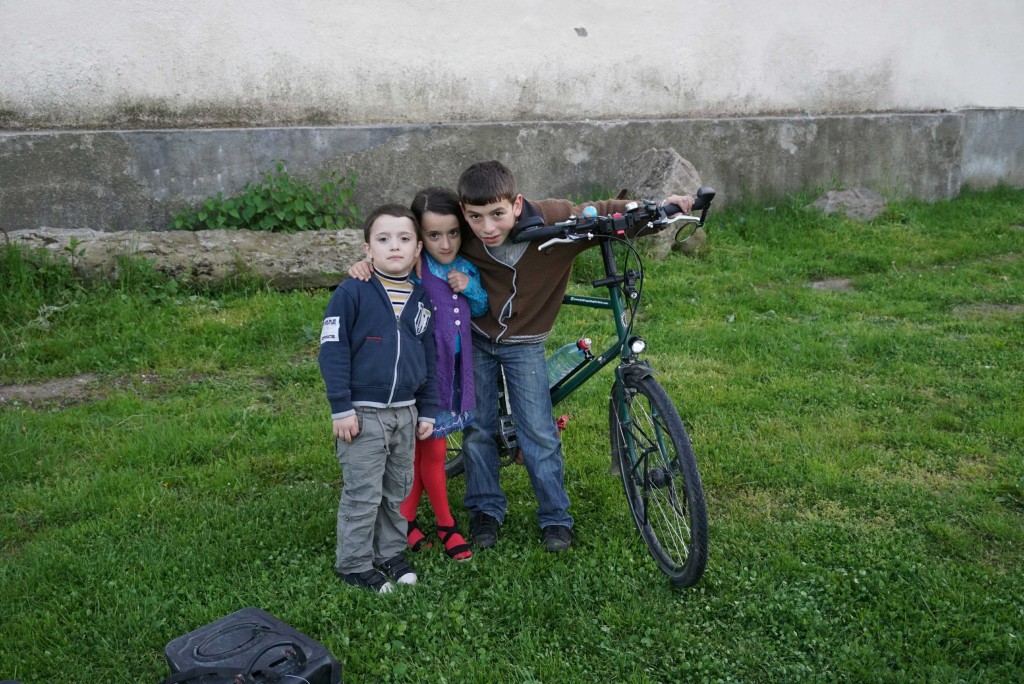
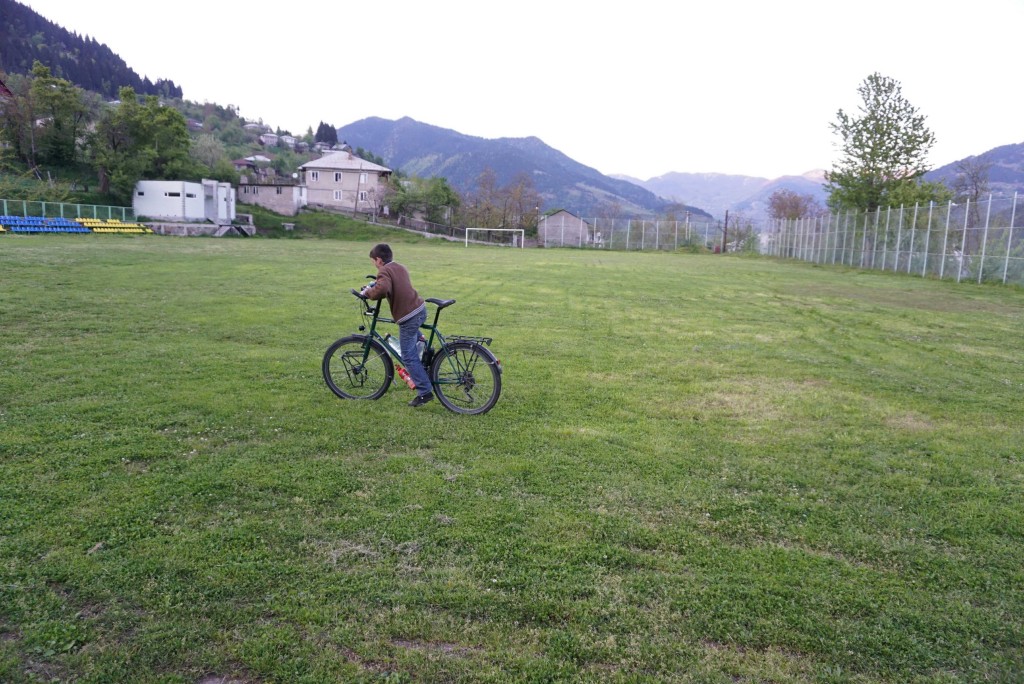
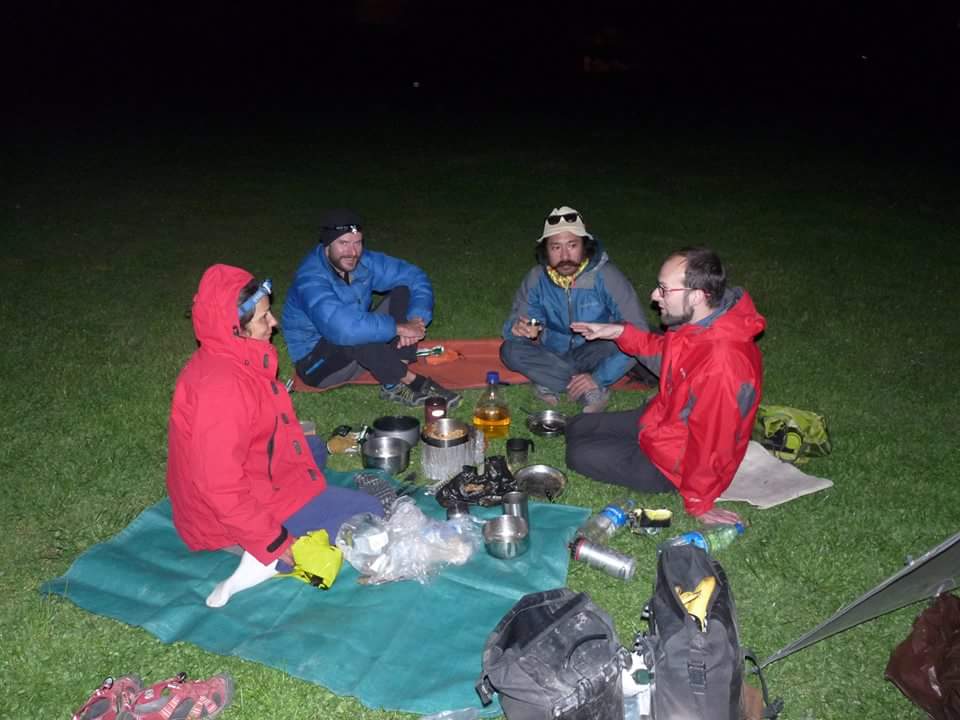
Next morning the asphalt disappeared with the last houses of Khluo and the road ceased to be a road in any recognisable sense. For the next thirty kilometres I rode the rough, rubble strewn, potholed, chossy track up to the valley headwall. Through hamlet after hamlet, tiny children waved and offered ‘hello’ as I approached, wobbling in bottom gear, then ‘goodbye’ as I creaked past two seconds later. The scenery was stunning, but most of my attention was directed to avoiding the worst craters and the occasional four wheel drive Range Rovers and marshrutkas that thundered past on any part of the road that they fancied.
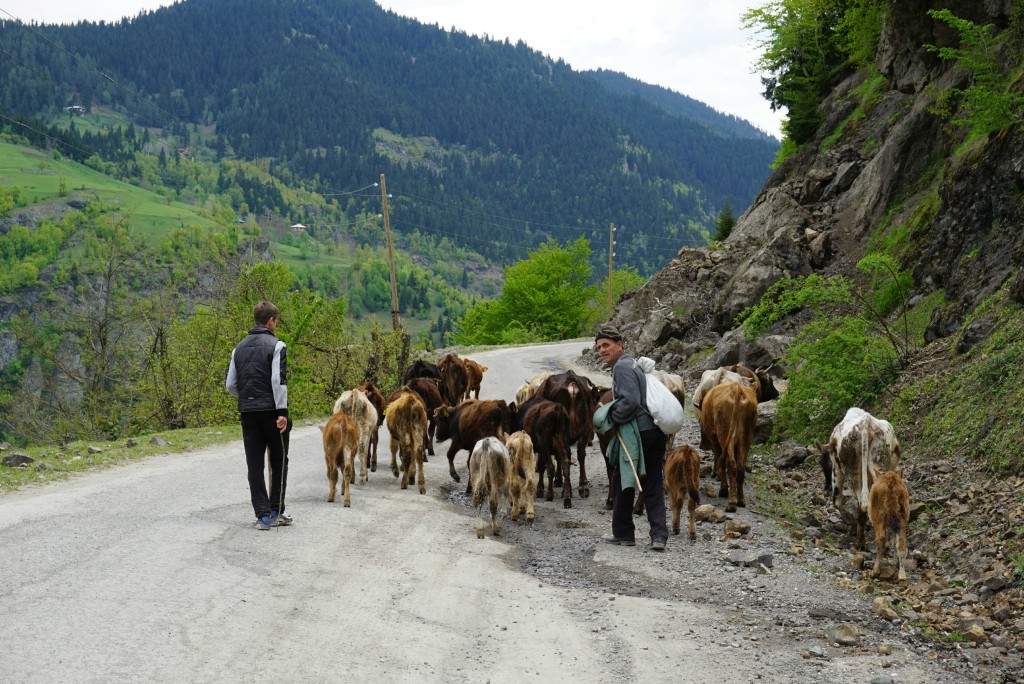
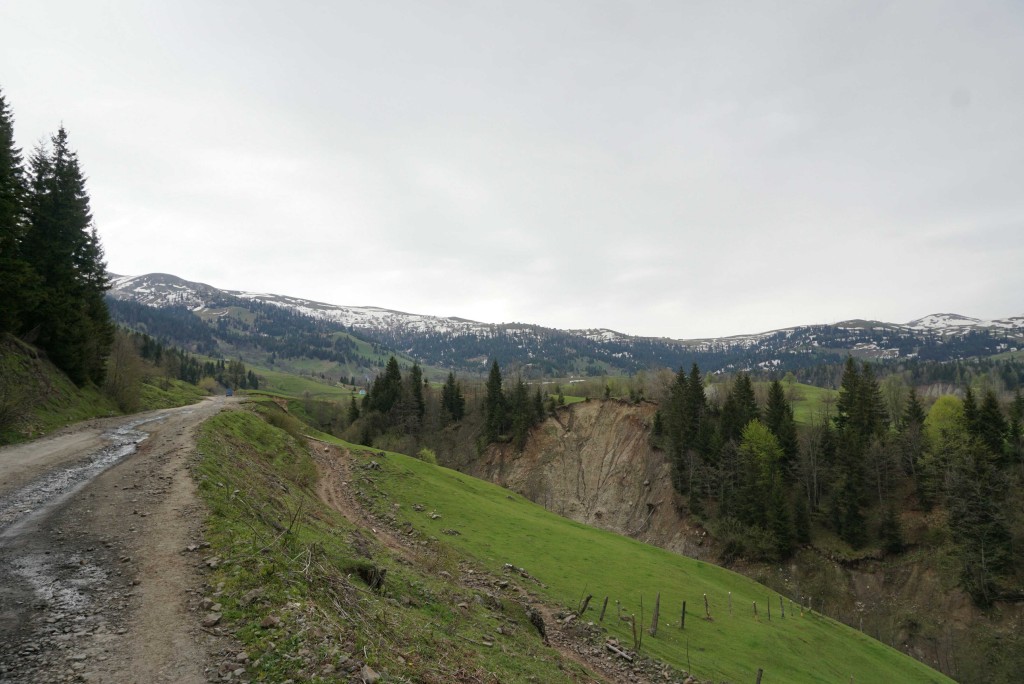
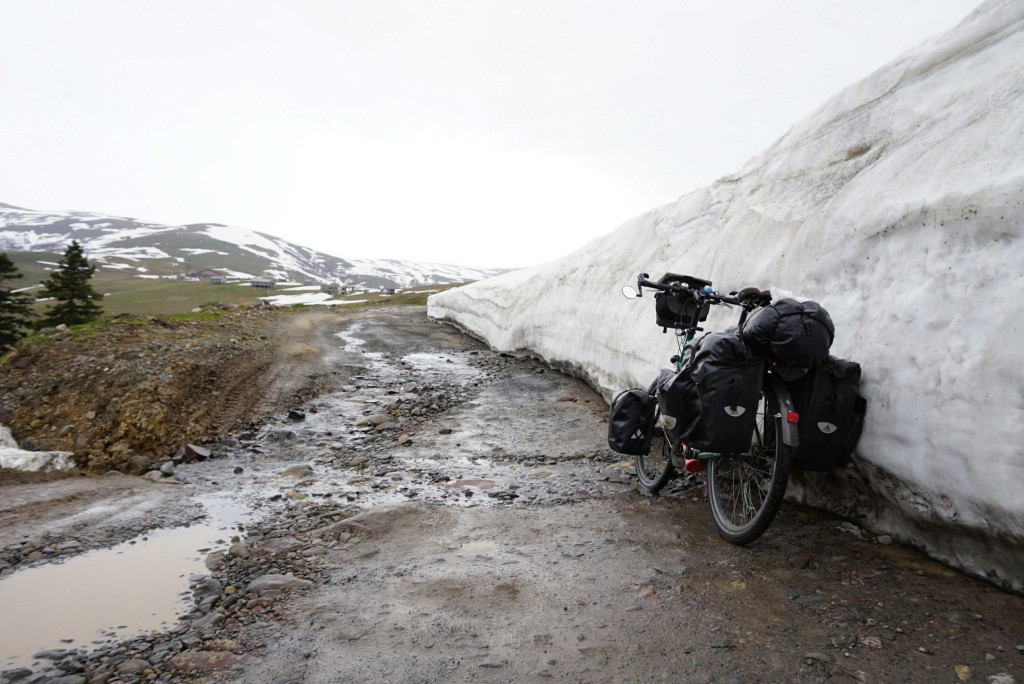
Finally topping out at the pass at 2025 in the late afternoon, the Goderzi pass hadn’t finished with me yet, as the descent was almost as strenuous as the climb. The ‘road’ was in the same rough condition, but with a series of deep fords thrown in for good measure. Approaching the first of these pebble river bed crossings I realised I had an audience on the other side; a Russian motorcyclist was waiting for his support vehicle (wuss) to catch him up, and shouted words of encouragement. Not wanting to bring the British mountainbiking fraternity into ill repute, I straightened up and committed to my line, and to my amazement got through the torrent without putting a foot down. As the water level came up to the bottom bracket I got a bit of a soaking, but the exhilaration was worth it. However, my decision to don dry socks at this point proved futile – little did I know at the time that I had another two of these splashdowns to look forward to.
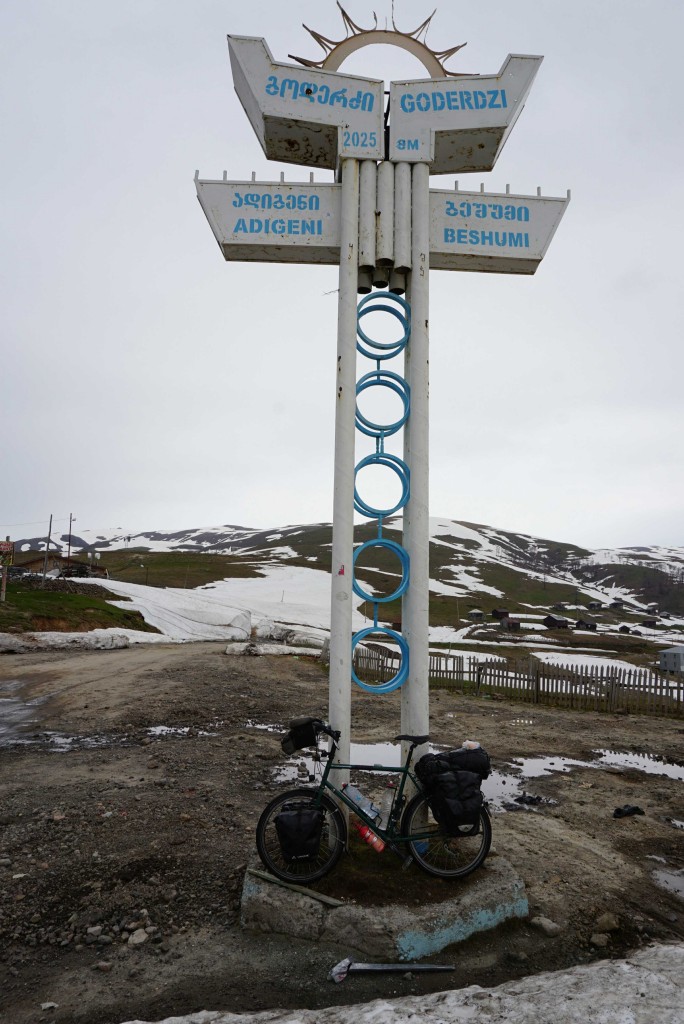
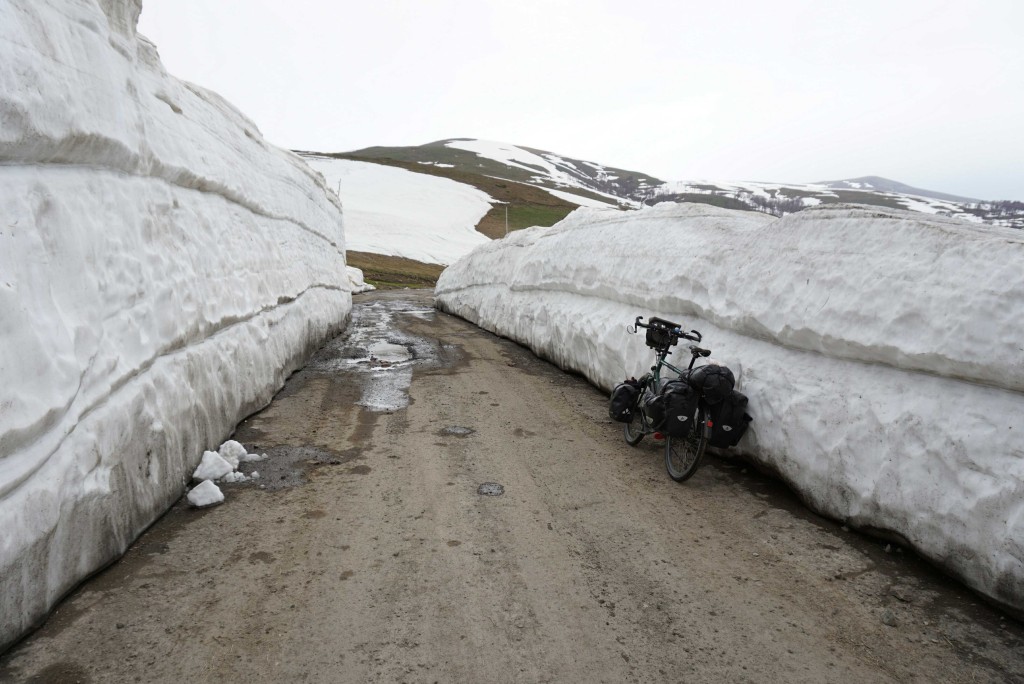
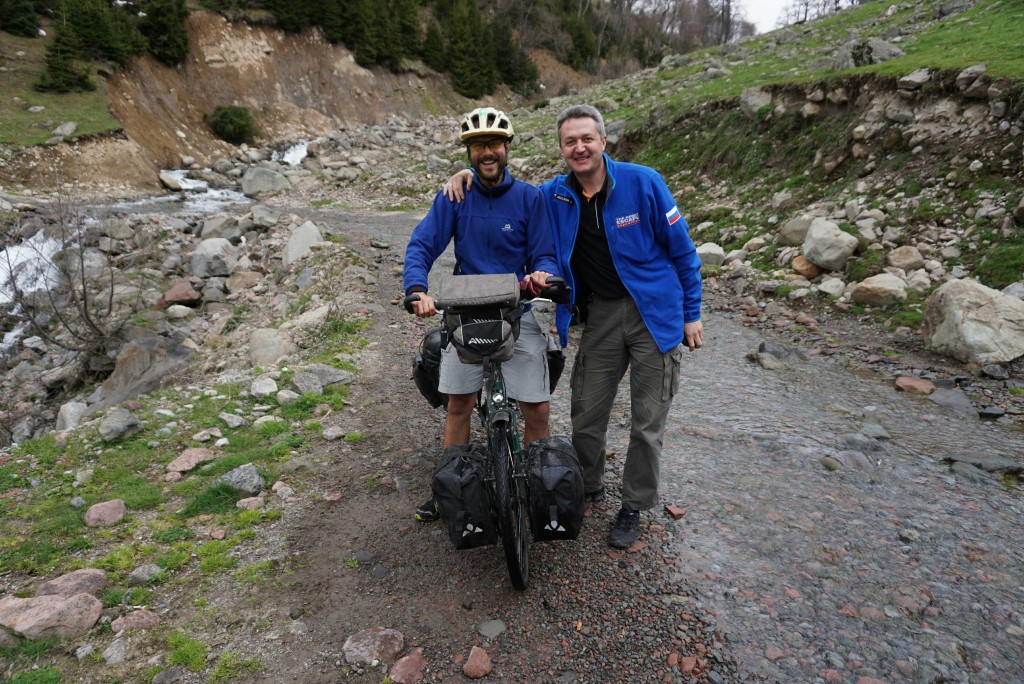
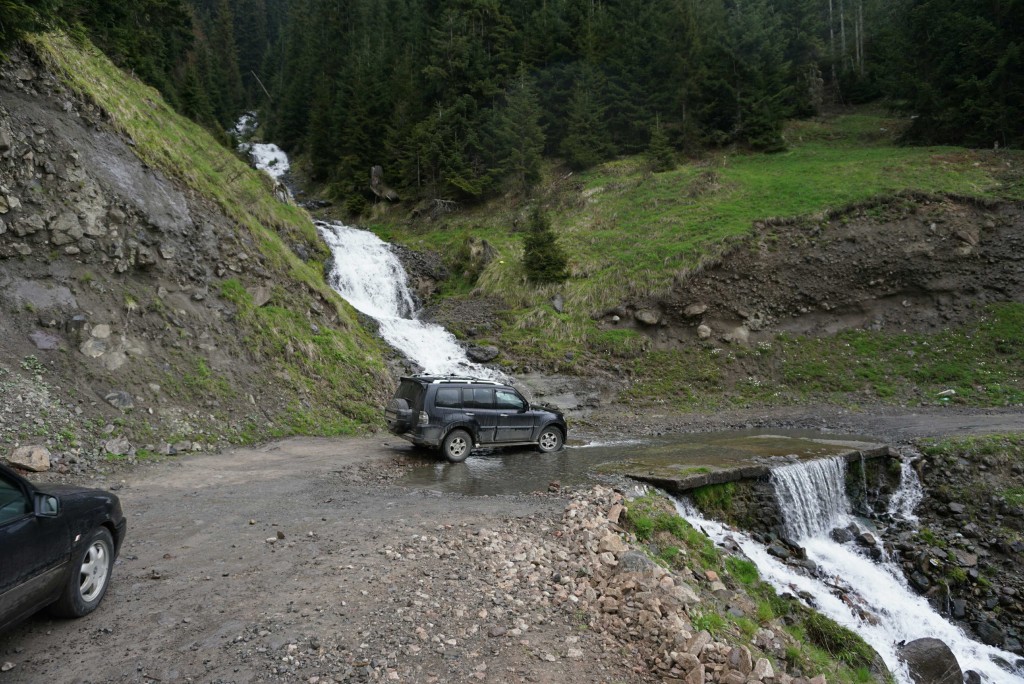
Down and down the track plunged through forests, with the occasional shepherd’s dogs making a sortie on my wheels to liven things up a bit. With the road too rough and my legs too tired to even attempt to flee them, I took this opportunity to put into practice the ‘get off the bike and confront the beasts’ approach that I had discussed with Oscar and Patricia the night before. To my relief it seemed to work, but the adrenaline still surged. Dan: 2, dogs: nil. Just when I thought I would never see a proper road again, the pavement resumed a few miles before Adigeni and I purred down the stunning river valley on glass smooth asphalt. Over a few medicinal snifters of Georgian brandy in my tent that night I calculated that to reach Tbilisi in two days I would need to ride 150km on both of the following two days. Not impossible, but I felt utterly depleted by the day’s ride over the pass. At 64km, it had been one of the shortest days distance of the trip, but was without question the most physically demanding. Conscious that I had already postponed my arrival in Tbilisi twice, I threw an extra fistful of spaghetti in the pan and decided it was worth a shot. The next morning I awoke to pouring rain. Never the best at getting up and away in the morning at the best of times, I took the coward’s option and had a lie in and a long breakfast (complete with by now obligatory visiting shepherd) until the worst of the downpour had passed, finally getting on the road about 11.30am.
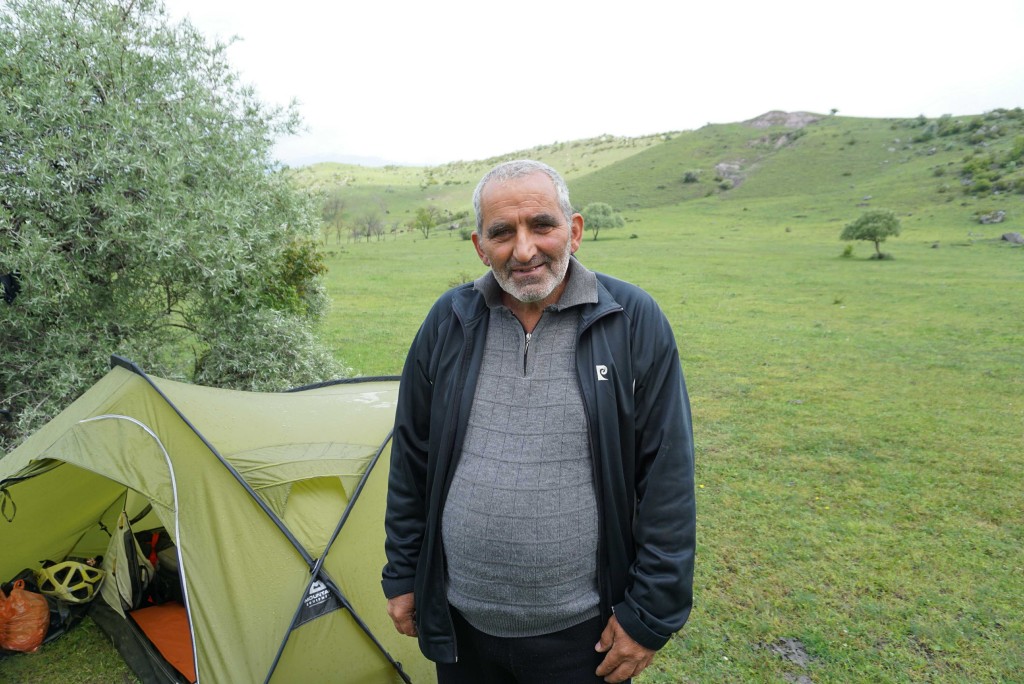
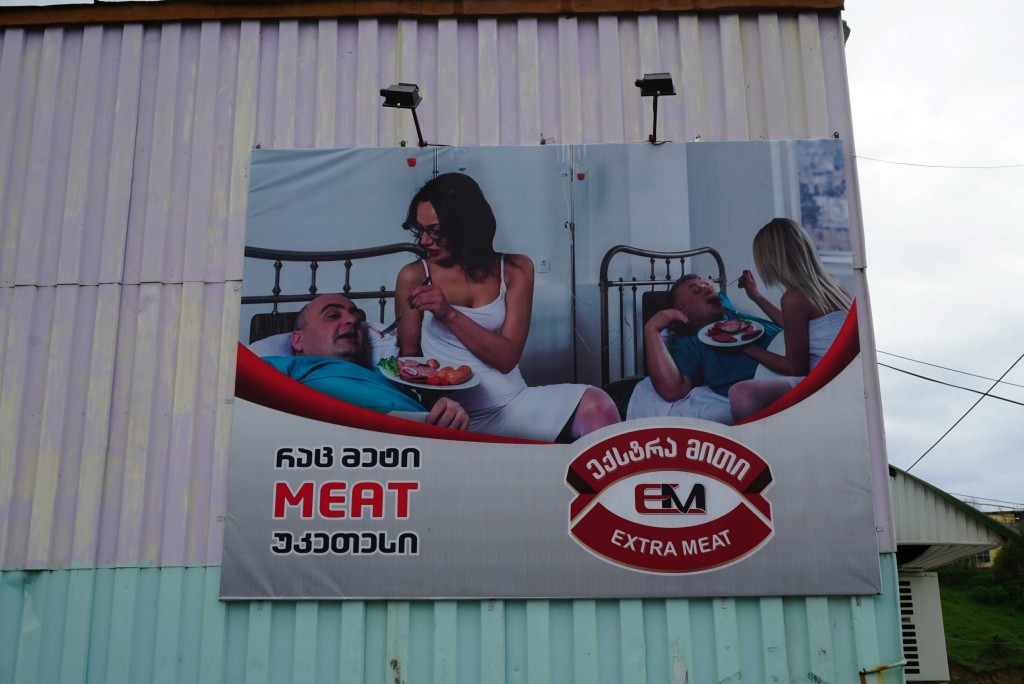
Through Akhaltsikhe and alongside the hydropower stations of the Paravani river, the lush mountain scenery reminiscent of Scotland, I pressed on with leaden legs. At Akhalkalaki I checked my progress and saw that I had managed only 120km. The bike felt like it weighed a tonne, although the day’s stealth ascent of 1100m might have had something to do with it too. Stopping to resupply for the night I chatted with locals, who counselled against my chosen route to Tbilisi, indicating that the 2200m pass was rough and hilly. But as I was now within a few kilometres of the Armenian border, and any other route to Tbilisi would add days onto my arrival time, I decided there was nothing else for it but ride after dark and start early the next day. Outside Ninotsminda, exhausted but with another twenty minutes of dim daylight left I made a snap decision to get off the road, diving into some woods and getting the tent up just before the skies opened again. Another look at the map showed 160+km into Tbilisi over the Paravani Pass. If the locals were right about the state of the road I was screwed. But maybe I had misunderstood. And after all, from where I was camping I had a 1500m height advantage, surely that was worth something?
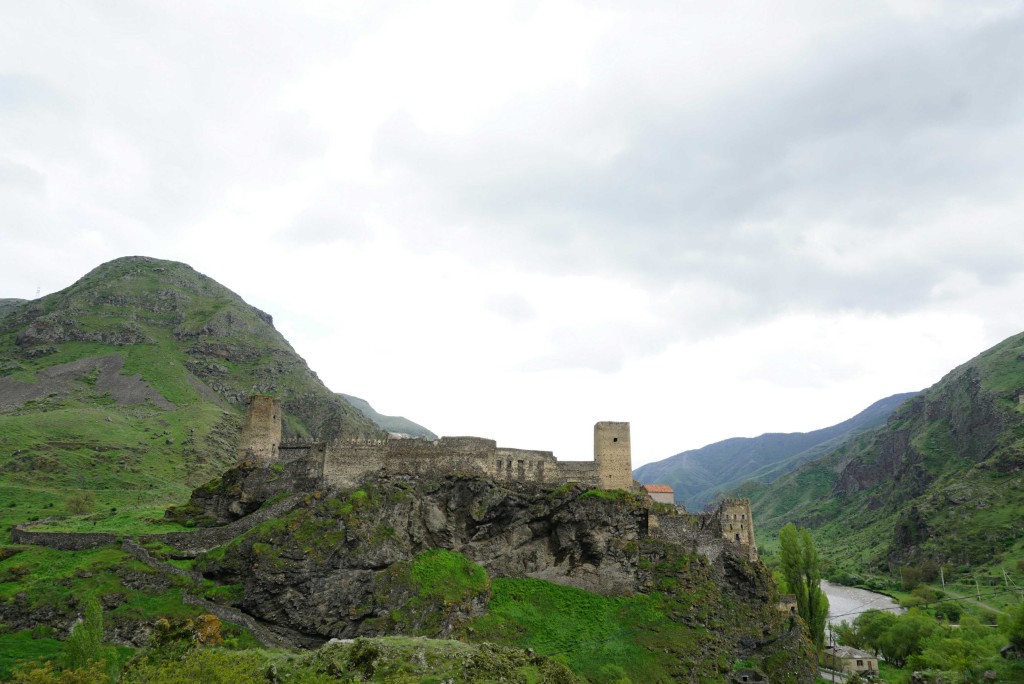
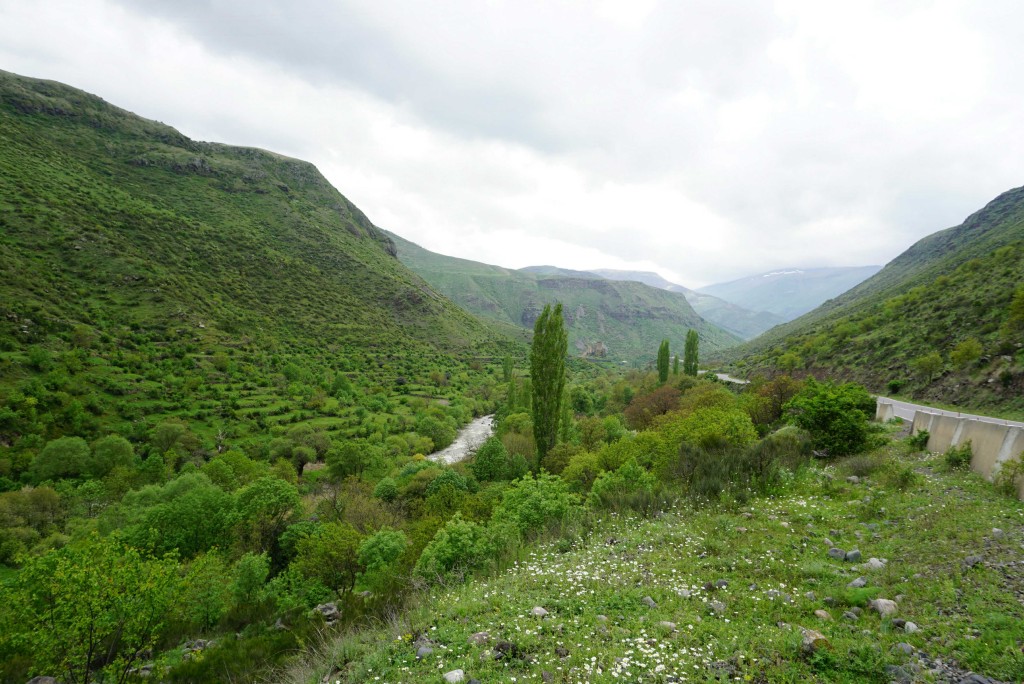
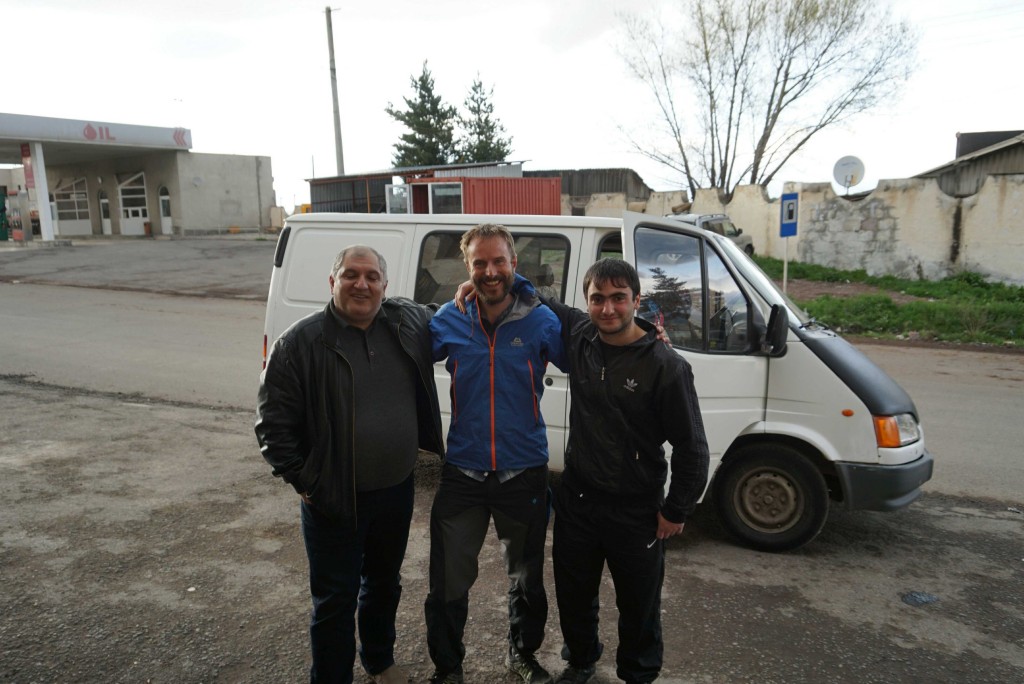
Rising at 6am I felt suprisingly good, perhaps the enormous bowl of pasta last night had done its work. A power breakfast of porridge, strong coffee and biscuits and I was in the saddle before 8am for the first time in almost 5 months on the road. Powering uphill in the big ring, I barely slowed to return fire at the dogs that charged me from the ramshackle farms that dotted the slurry spattered roads on the way up to the top of the pass. On the map the road appeared to become a minor route for 40 or 50km after the summit, so if it was going to get rough it was coming any minute now. But as I crested the watershed, the road surface got better if anything and I picked up speed for a series of breathtakinginly fast descents, first swooping through meadowland, then eyewatering switchbacks through dense forest. By 3pm I was still 70km away from Tbilisi, but now I was pretty sure that I would make it in a few hours, so long as I kept the Snickers going down. As quickly as hopes rise, so are they dashed. My 1500m elevation advantage fully cashed in, I was left at the mercy of the preposterously hilly countryside around Tbilisi. For folks back home, think hill reps on Mam Nick, in 35°C, at around 75% relative humidity, with a 60kg rig (“with nowt to eat but half a handful of freezing cold gravel” etc). For everyone else, think very red in the face. But by some strange perversion I actually enjoy hills, love ’em in fact. So without labouring any further what, unsurprisingly, turned out to be my longest day of the tour (174km I think), I eventually gasped my way into the dust and heat of Tbilisi around 7pm where I was treated to home made pizza by Umar, my Couchsurfing host for my first couple of nights in town.
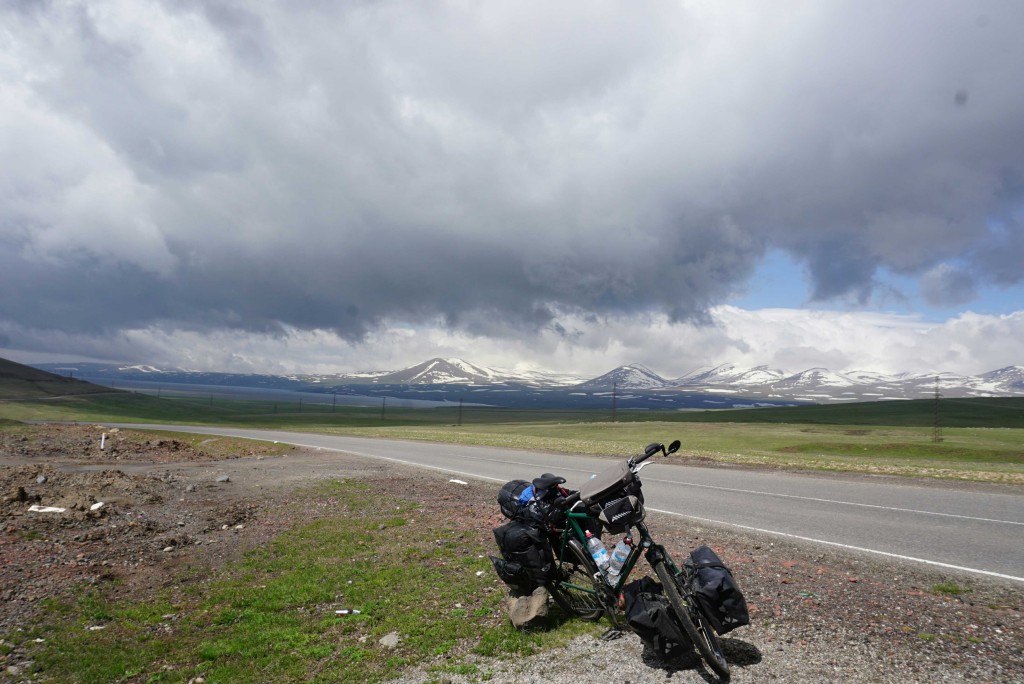
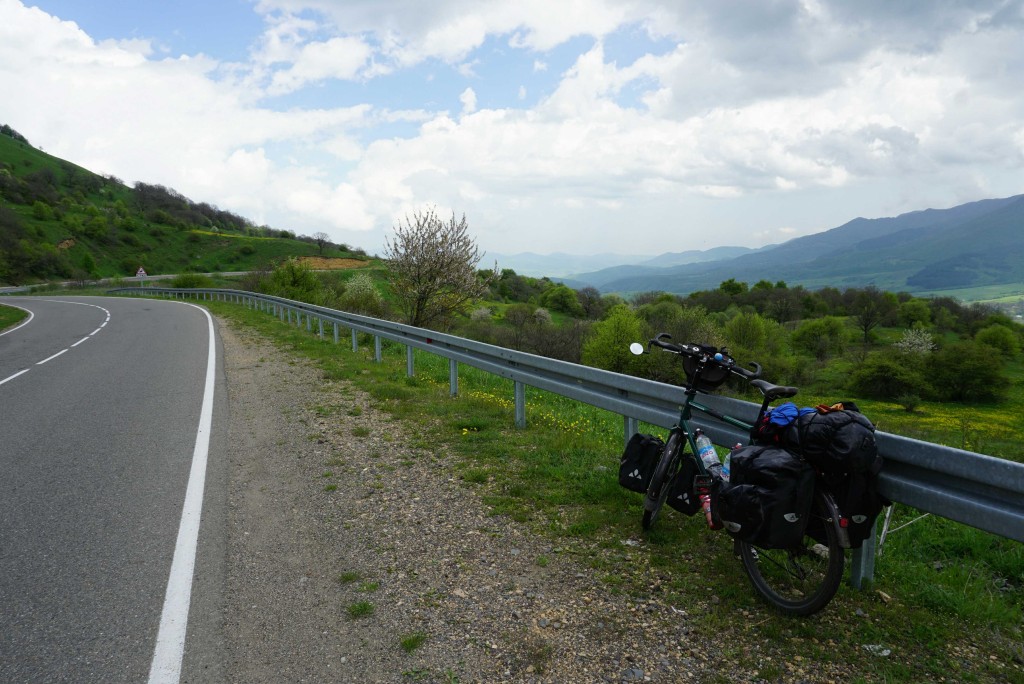
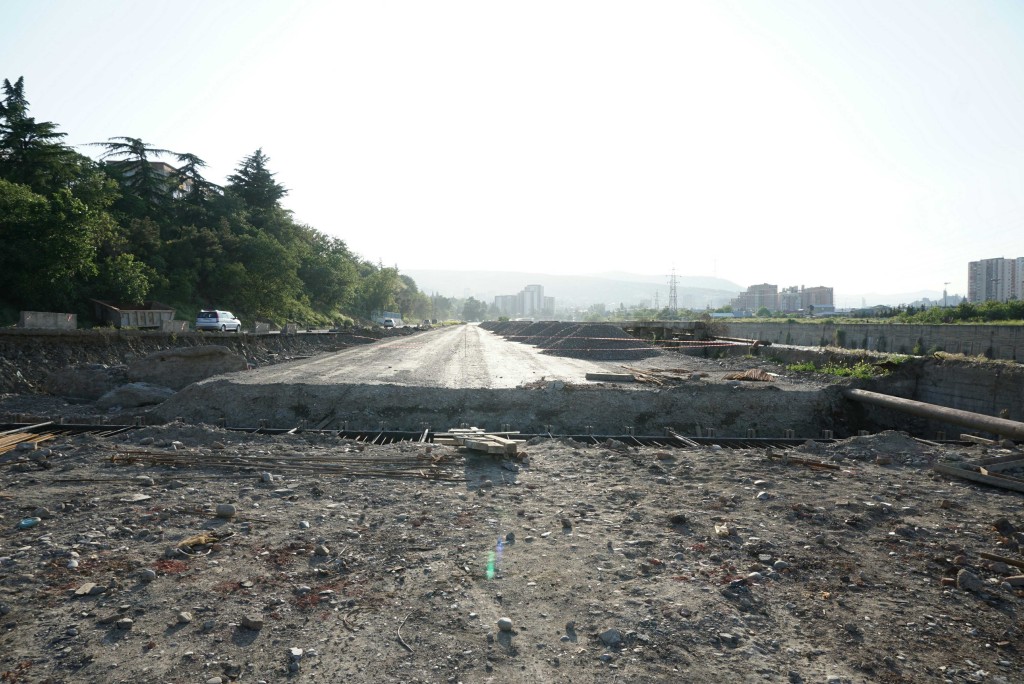
Over the next few days, in between his studies at medical school, Umar generously showed me round the city and introduced me to his friends. Between rounds of kinkhali (enormous Georgian dumplings) and making a start on series five of Game of Thrones, my recovery was complete. As I started to find my feet, the cyclists I had met up the road started to arrive in the city, first Taneli, then Gary and Wolfgang (a German cyclist who was arriving just as I left Batumi), then Volkan, so it was great to catch up and discuss plans for obtaining visas. I also enjoyed meeting up with other Couchsurfers at the local gatherings.
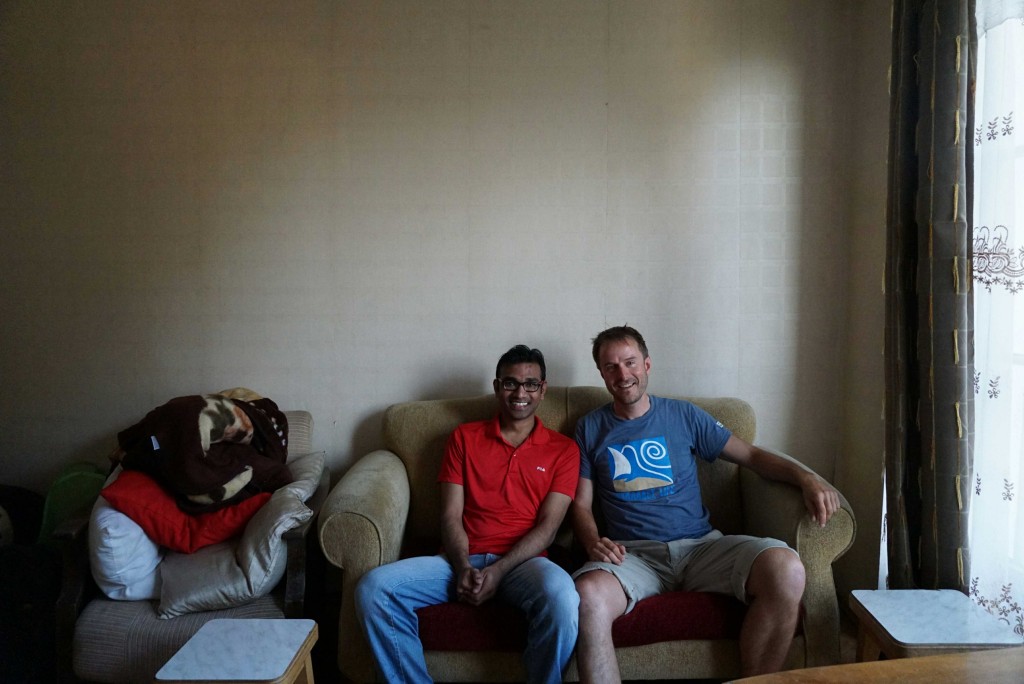
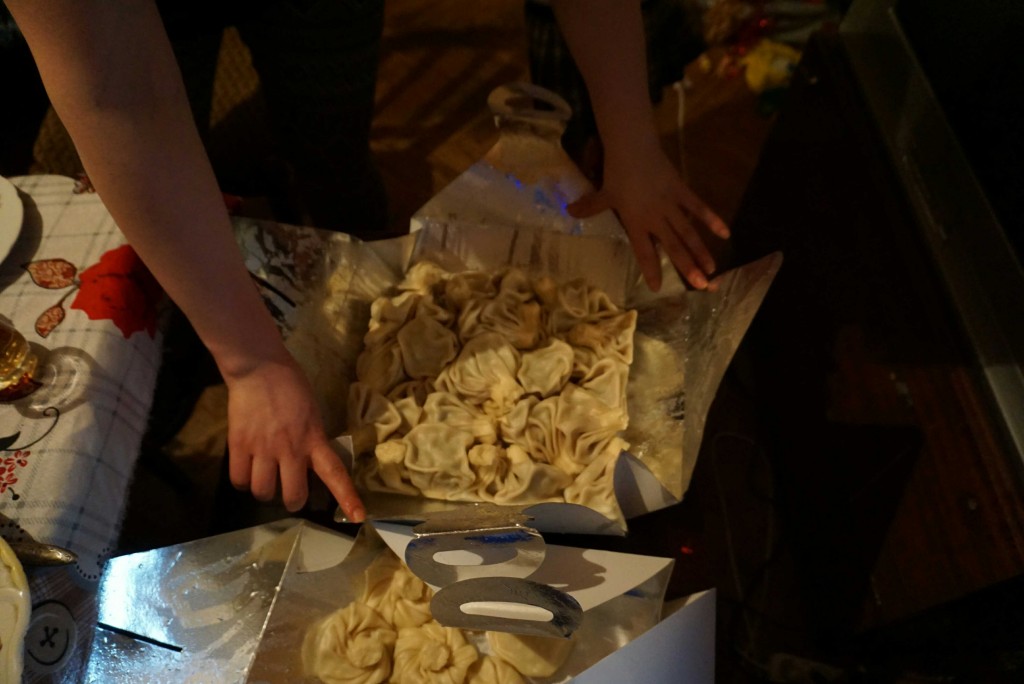
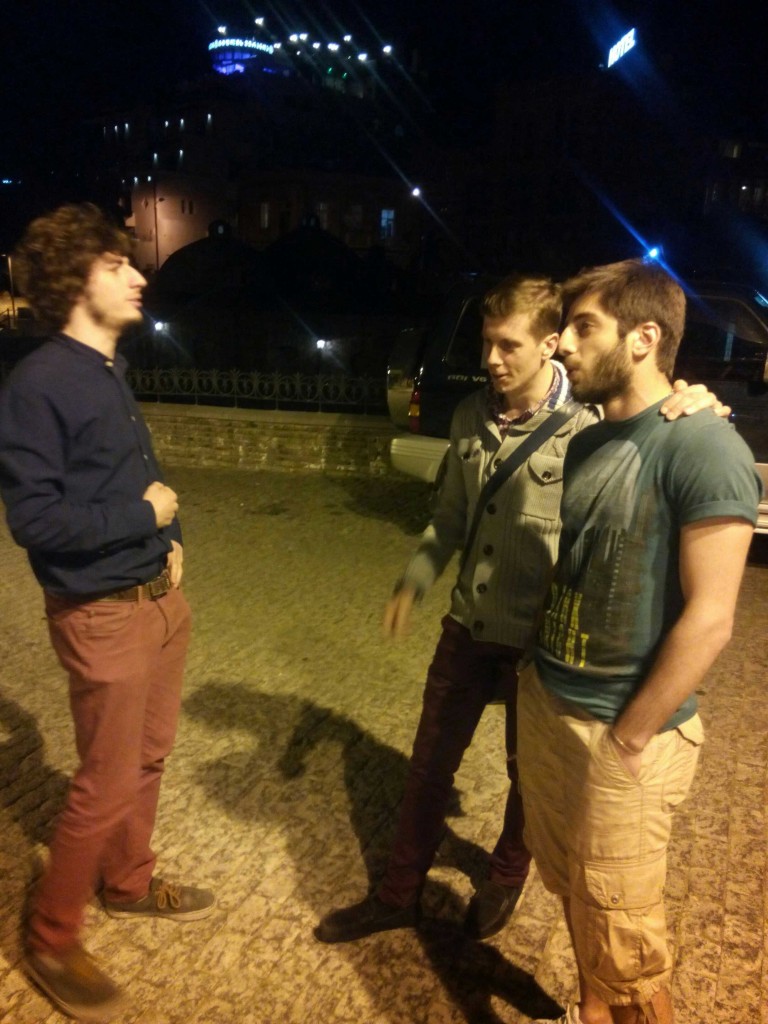
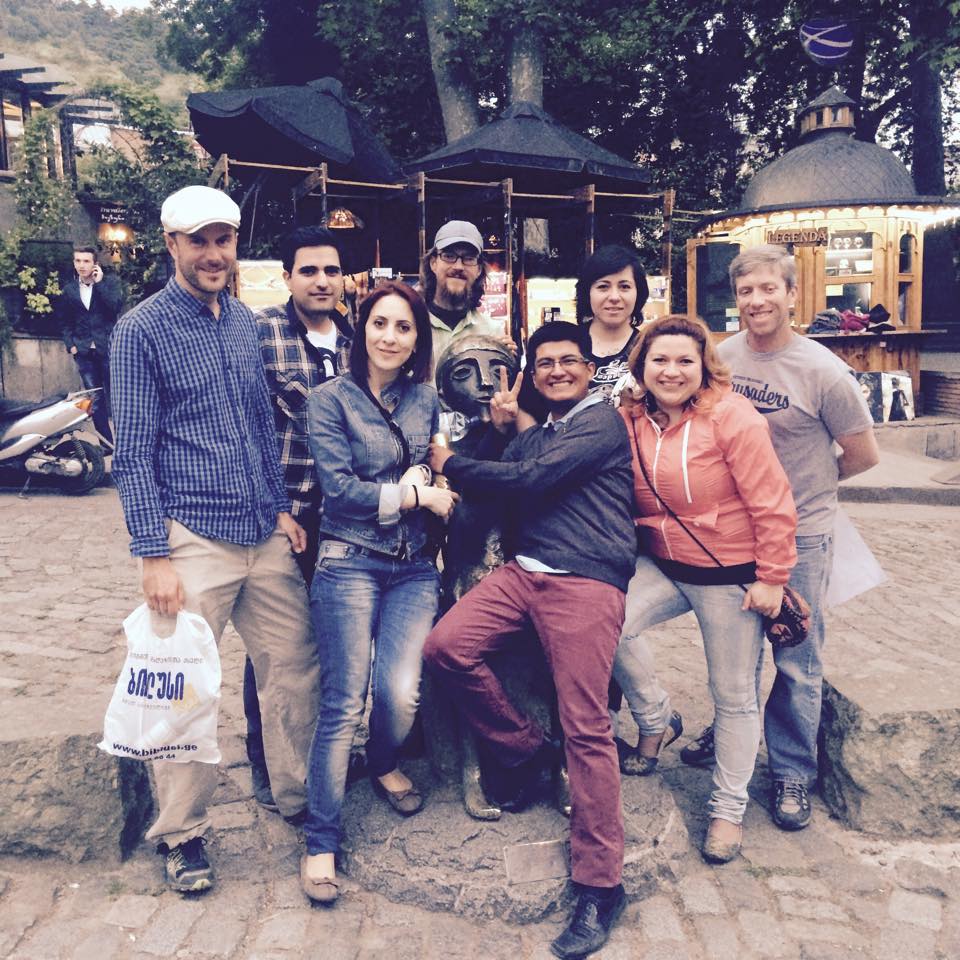
Visas were always going to be my main preoccupation while in Tbilisi, as I had decided to try to emulate the approach taken by other Silk Road cyclists in recent years by sending my passport back home to London – the only way to secure a three month stay in China. I estimated that this would take at least two weeks in the process, so I had made a concerted effort to find hosts to stay with in Tbilisi. As is often the case in popular backpacking or world tour destinations, it had initially looked impossible to find anyone to stay with (some Couchsurfing hosts later told me they get an average of five request per day). In the end I was lucky enough to receive three solid offers, so after a few days with Umar I decamped to stay with Uli, a policy adviser at the Georgian Department of Climate and Energy, and possibly the best-connected man in town. From the cool, calm sanctuary of Uli’s apartment high above the madness of the car-choked old town of Tbilisi, I drew my plans of attack for obtaining the necessary visas for the notoriously bureaucratic Stans and all important China.
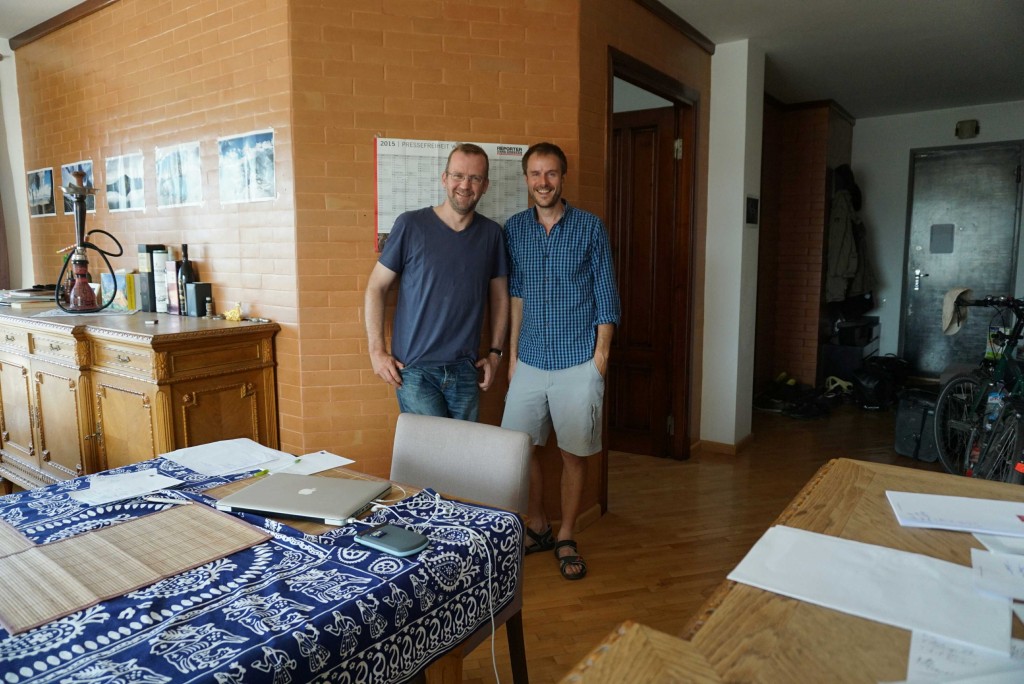
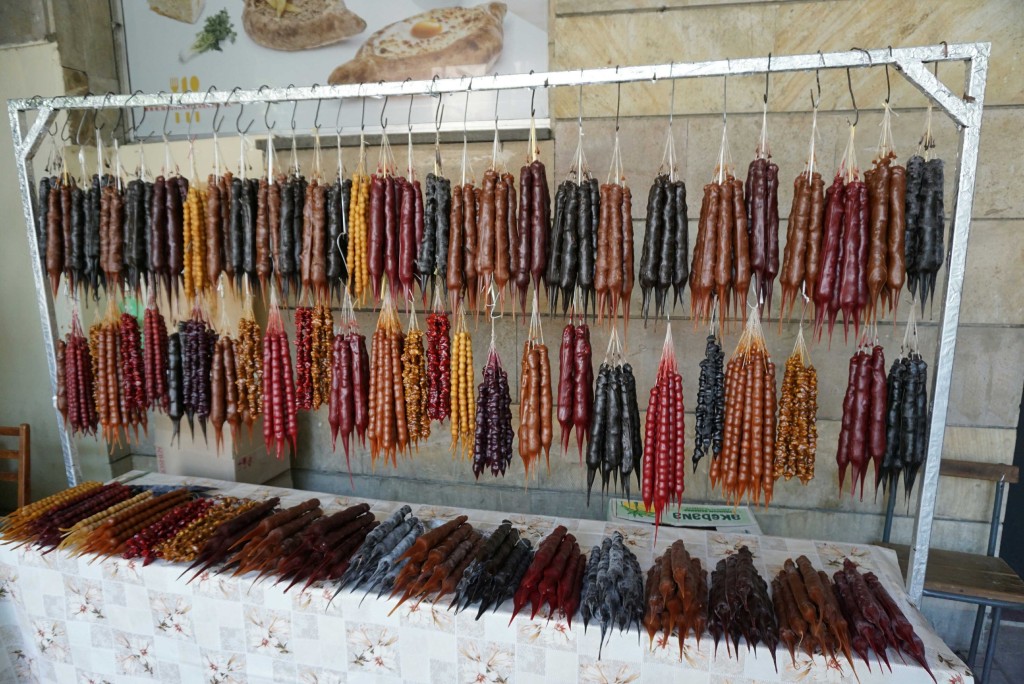
My very first phone call threw all my plans into disarray. The agency in London that I had planned to use explained that in the last two months Chinese visa policy has been tightened considerably for British travellers; now any application for more than a standard 30 day tourist visa is super-scrutinised and routinely rejected. Other sources confirmed it. Shit!! China is a vast country, and my dream route across the Tibetan Plateau into Nepal hinged entirely on getting that 90 day permit. Accepting that my Tibet-Nepal aspirations were something of a fantasy anyway, I started work on plan B: obtaining a visa for Pakistan. As I read about the mind-meltingly mountainous routes of Pakistan, Kashmir and North West India, I took heart, perhaps the loss of the Tibetan dream was a blessing. But Pakistan is no pushover for the British traveller either; long gone are the days of obtaining a visa on arrival. For reasons too tedious to recount in full here (see separate logistics page, to follow), all auguries indicated that I would spend a lot of time and money on a Pakistan visa application that would most likely be refused. To clear my head from the bureaucratic nightmare, I went back to my roots and ventured for a few runs into the hills above Tbilisi.
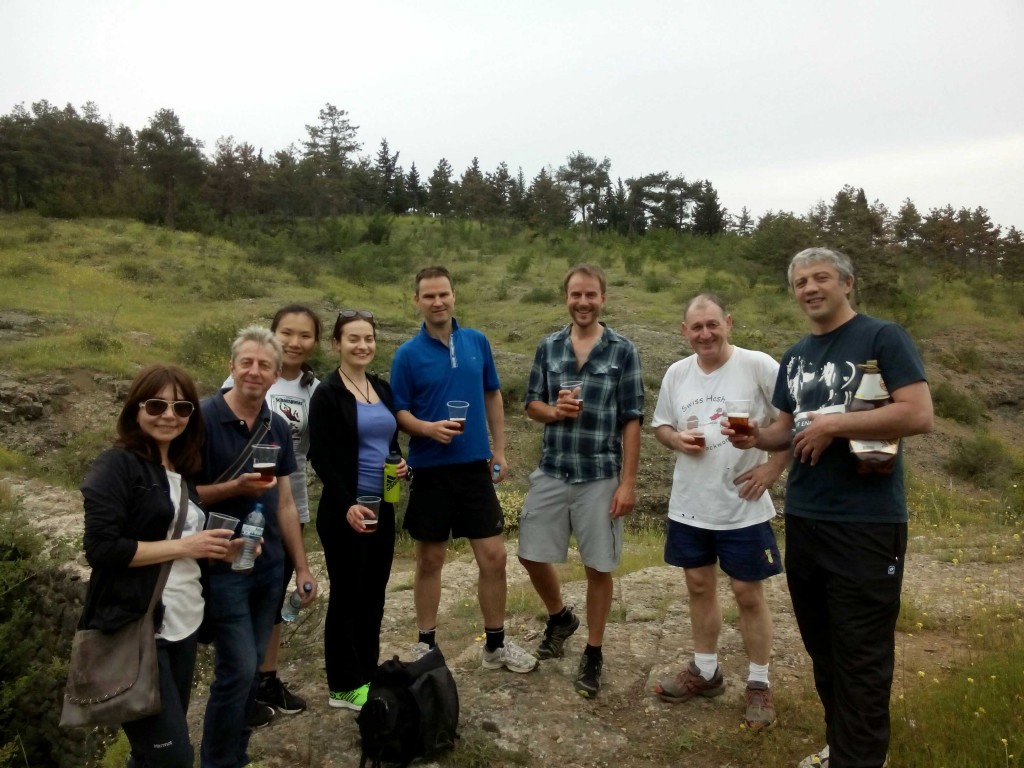
So plan C was to worry about all the issues with the China and Pakistan visas later, maybe in Kyrgystan or Almaty, and just concentrate on getting the next few countries’ visas lined up. So Azerbaijan, Kazakhstan, Uzbekistan and Tajikistan. Except, um, it turns out that Uzbekistan and Tajikistan don’t have embassies in Tbilisi (really there is a limit to the amount of research a person can be expected to do). Kazakhstan is currently visa free for Brits. So plan D became get the Azerbaijan visa, collect the parcels that had been mailed ahead to me, and get the hell out of Dodge.
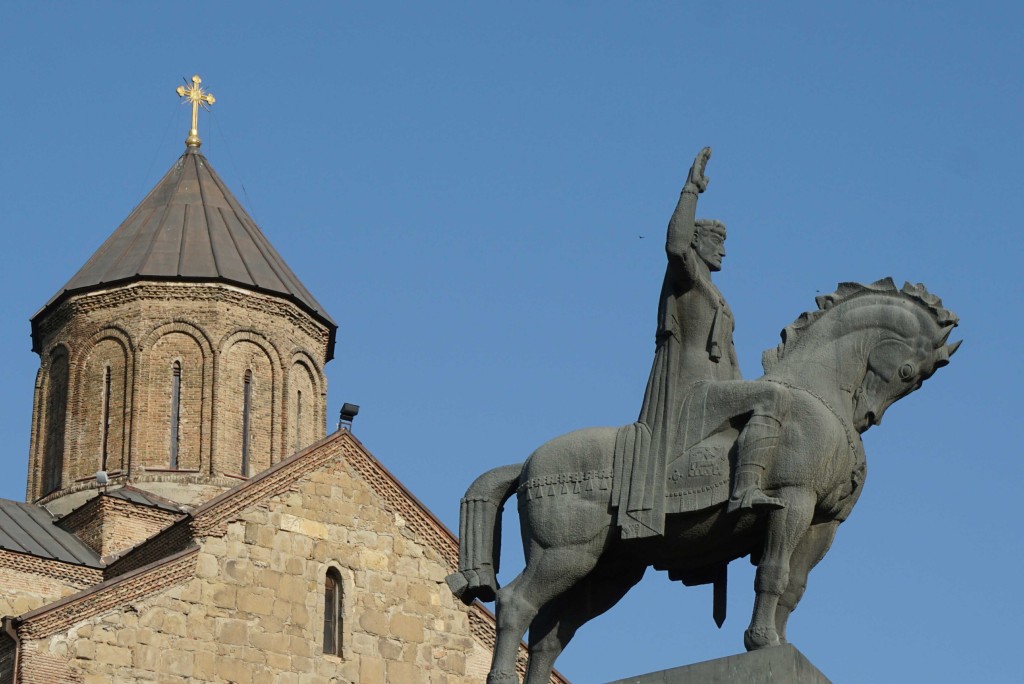
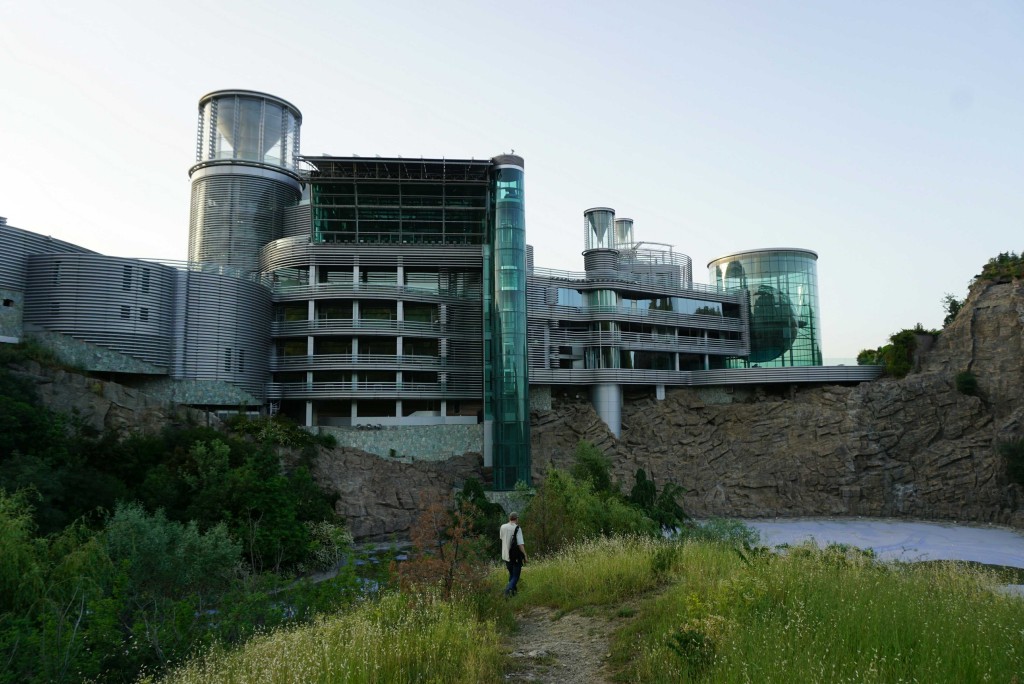
My Azerbaijan visa application successfully lodged by way of the transparent but apparently acceptable ‘Booking.com’ fandango (book a hotel for the duration of stay and cancel it), I relocated via another terrifying cross town rush hour bike ride for the second time, to stay with Melissa, a teacher at an international school, and her eight year old son, Elijah. From there I turned my attention to tracking down my packages. Most urgent was a replacement sleeping mat from Exped, as the one I was using by now had three broken baffles, making it pretty useless as a sleeping mat, more like a sleeping sausage. From back home I had arranged for Steve to send the high spec mountain bike tyres and tubes that I had bought before I set off in preparation for the tough desert roads of Kazakhstan and the Pamir Highway, along with a much better bike lock and a few other bits and pieces. Finally, Elina had kindly mailed my photochromic sunglasses that I left behind in Greece. Aware that it could take well over two weeks for things to arrive from the UK, I had arranged in advance for Achiko, a friend of a friend in Tbilisi, to provide a mailing address. I had also heard all kinds of stories about parcels being opened by customs officials, going missing, being impounded, etc, so when Achiko told me there were three parcels waiting at the local post office I couldn’t hardly believe my luck. Exped mat, check. Sunglasses, check. Tyres, check. Oh hang on, why is there only one tyre, one tube and the keys to a bike lock in this parcel? Had I been ripped off by the Georgian Postal service? With Achiko’s help the post office staff started ringing round the various places where things tend to get intercepted. In the meantime I contacted Steve to make double sure that he’d sent everything. As it turned out, Steve’s pal had mailed the stuff and was told that it’s cheaper to send two smaller packages than one medium sized one. Aargh!
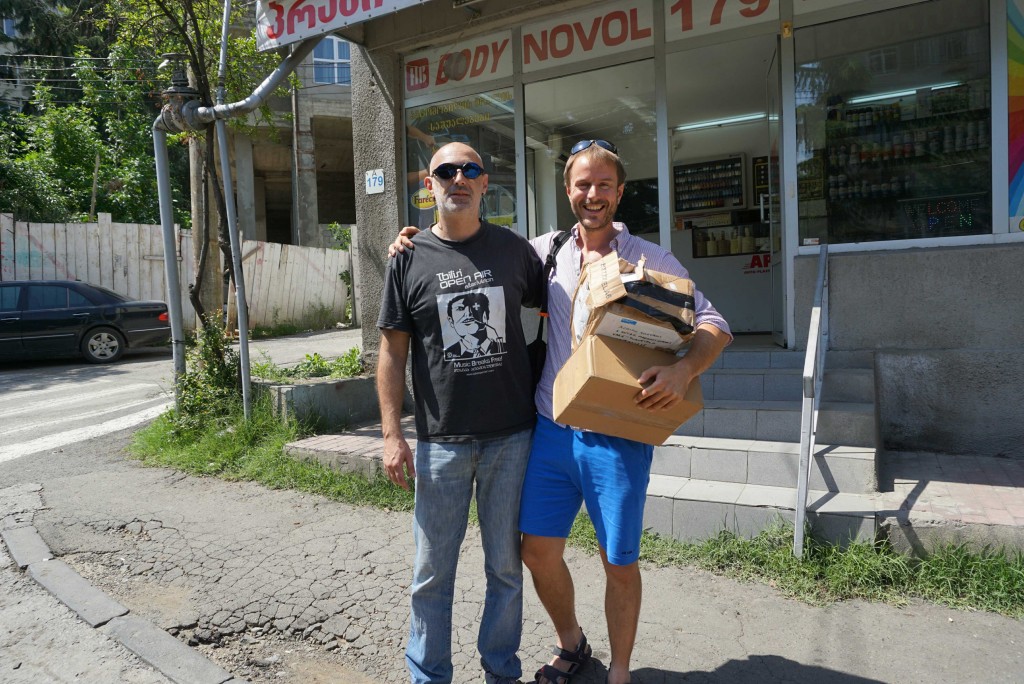
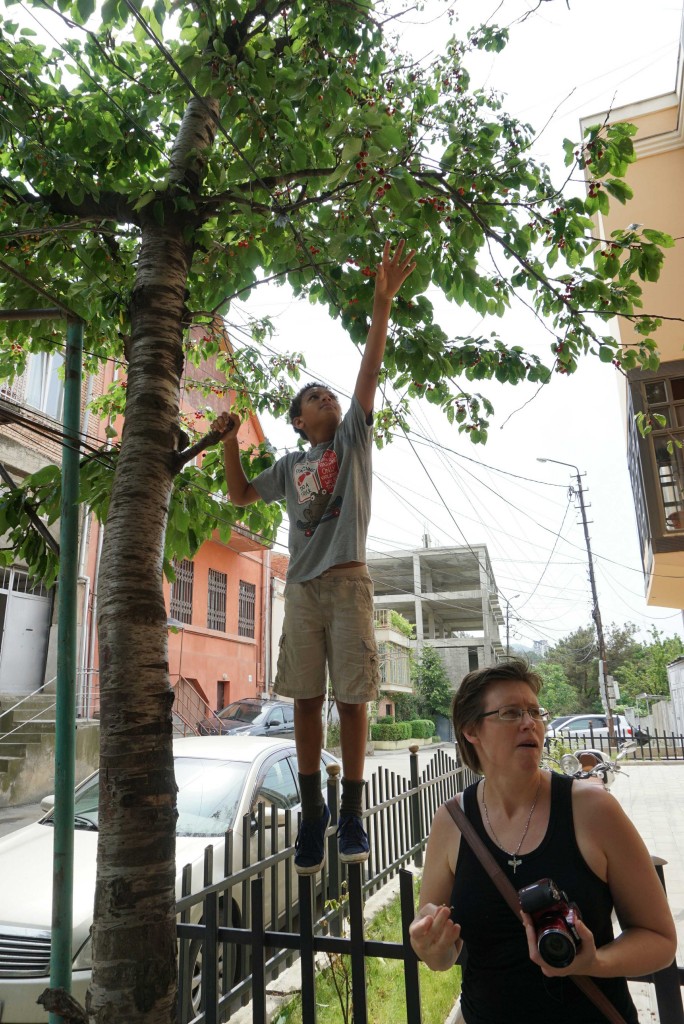
For another four frustrating days I waited to see if the errant tyre, tube and lock turned up, during which time I found myself the sole occupant of Melissa’s spacious flat as she and Elijah moved back to the USA leaving me the keys, as her lease still had over a week to run. Unfortunately, her flat was rented through her former employer, and having somehow got wind that she had left the country early, they turned up to reclaim the property. Which meant, politely but firmly, evicting me. Since my Georgian really wasn’t up to claiming squatter’s rights, and with my Azerbaijan visa expiring day by day, this proved to be the kick up the arse I needed to get on with my journey. So after three wonderful weeks of very agreeable company in town, I finally quit Tbilisi and headed north.
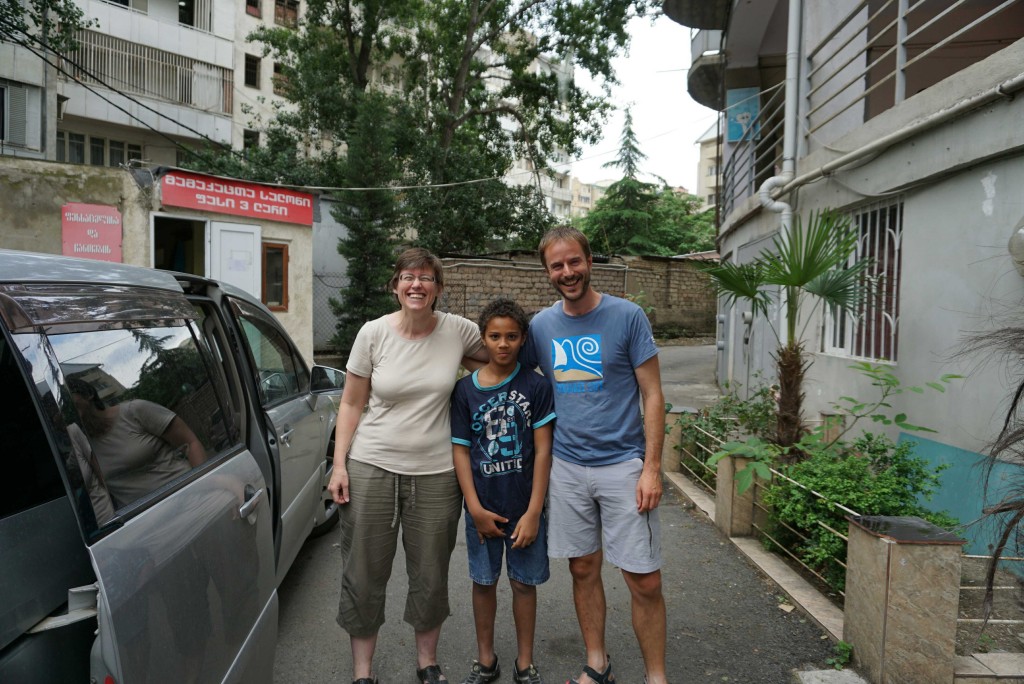
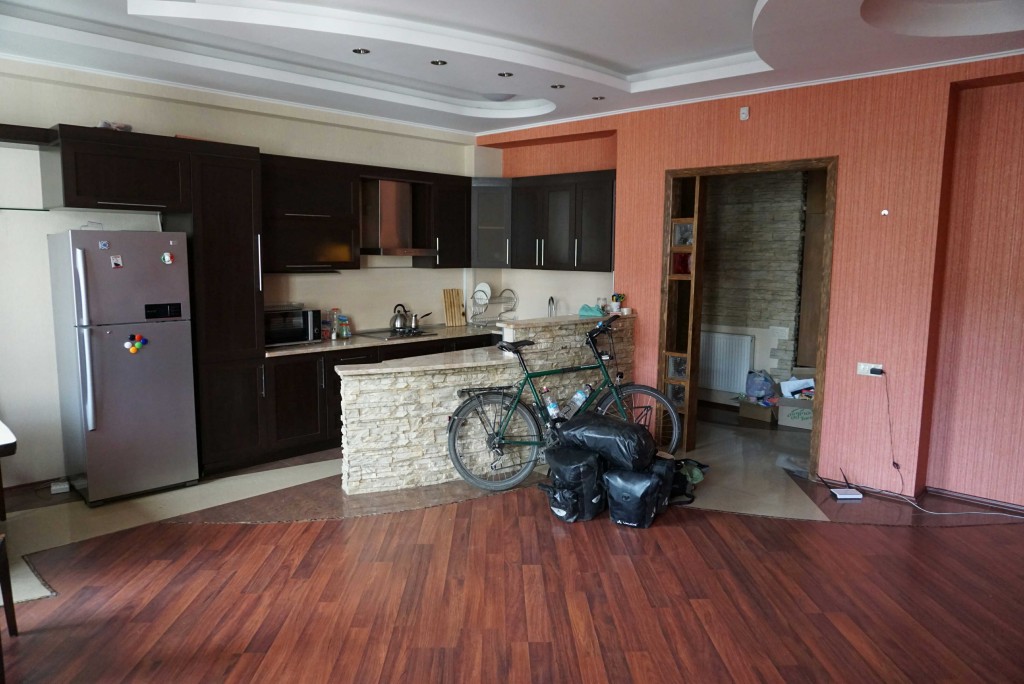
My memories of Tbilisi are of good times drinking beer and eating kinkhali with locals and fellow travellers, interspersed with walking round Mtatsminda Park with a group of German and Icelandic conceptual artists, beating Elijah at sock football (sorry we never got to play the rematch dude!), acting as tamada (toastmaster) at the family celebrations for Saba’s 21st birthday (an honour usually reserved for the biggest pisshead of the gathering I believe), presenting a bunch of flowers to an opera diva at a recital in the national music conservatory, being initiated into Tbilisi Hash House Harriers while out on a run in the hills (a sort of drinking club with a running problem); all the while dodging the insane car and minibus drivers who rule the streets and indeed pavements and balconies of this crazy, wonderful city (really they are the worst, in a country of probably the worst driving in Europe – the squeal of tyres and the screech of brakes is never out of earshot, as drivers lunge between lanes and surge out of sidestreets). A bizarre but sad postscipt as if to prove its crazy city status, three days after my departure the intense electrical storms that had raged over many nights during my stay reached a crescendo and deluged the city, flooding many properties but also the city zoo. Many of the caged animals drowned, but dozens escaped to roam the city and cause mayhem, including a hippo, crocodile, several big cats (lions, tigers, panther), bears, wolves and hyenas and god knows what else. Several keepers and members of the public were mauled to death before the animals were shot by the army. By some fluke Taneli’s basement hostel, within 250m of the zoo, didn’t flood, giving him a chance to improve his wildlife photography from his armchair.
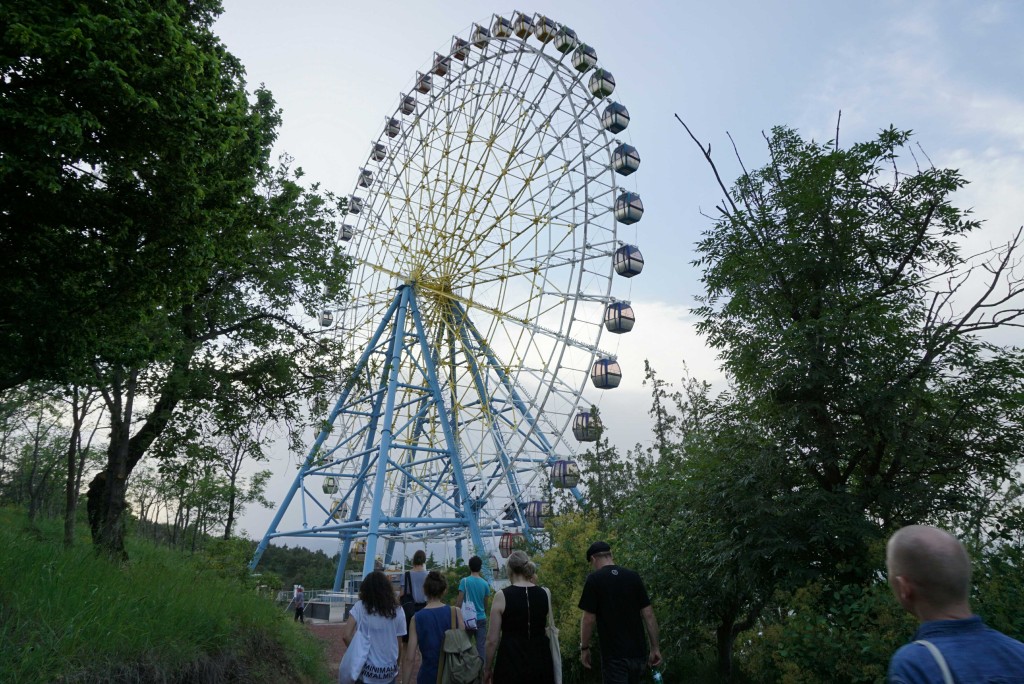
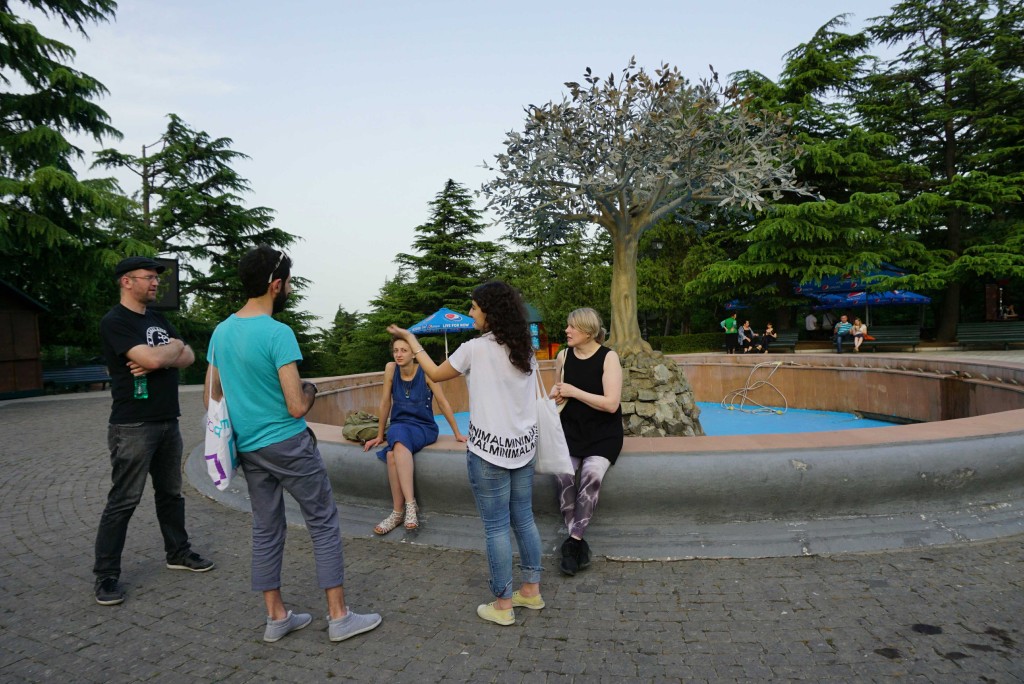
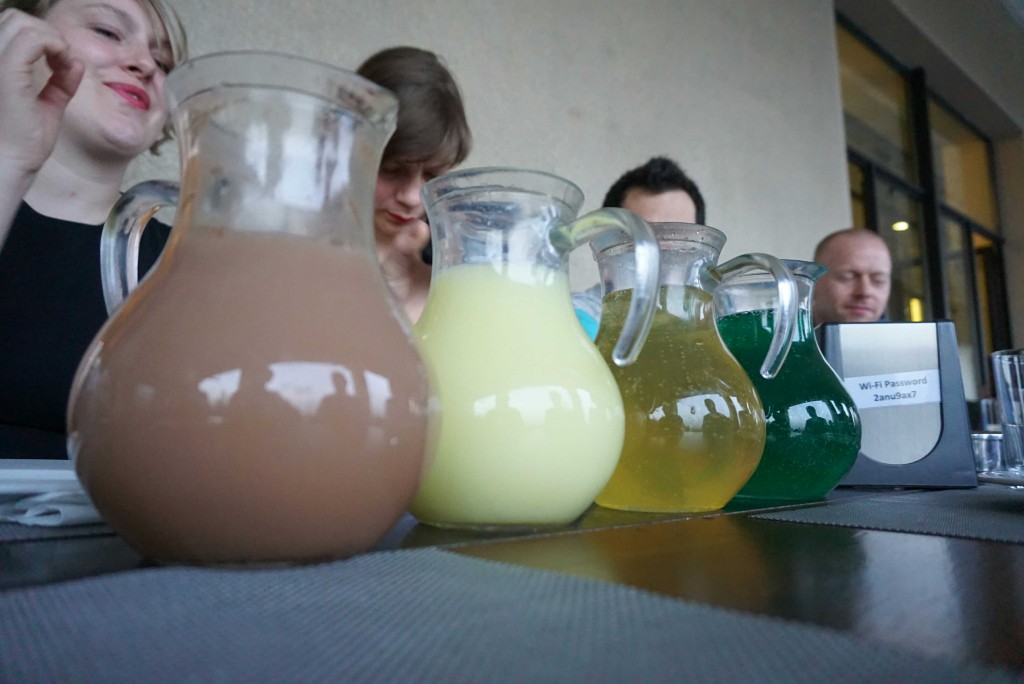
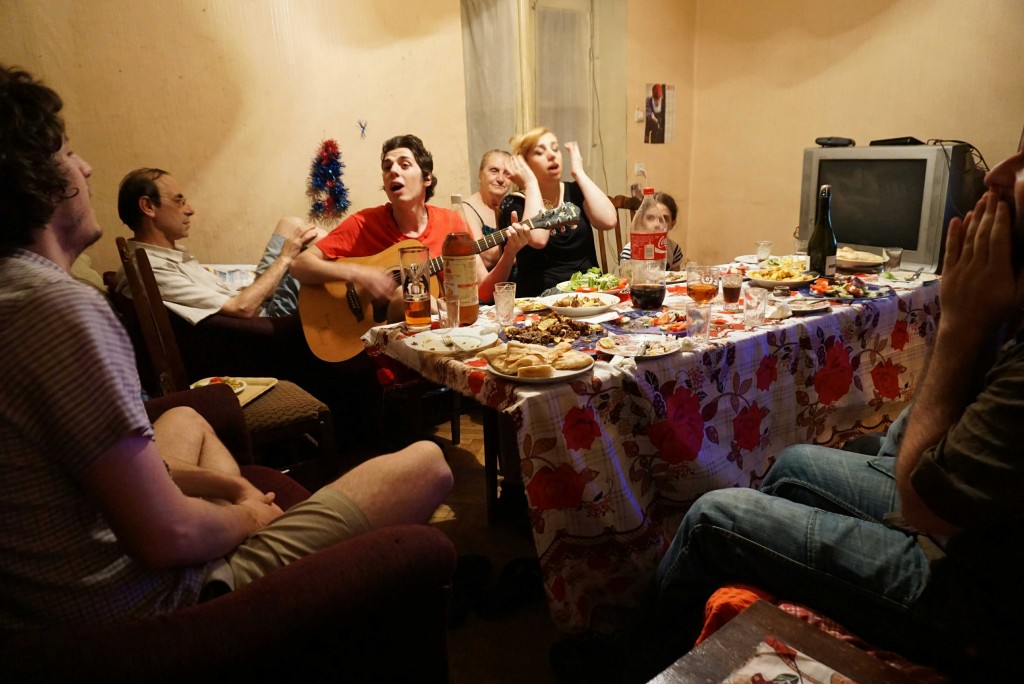
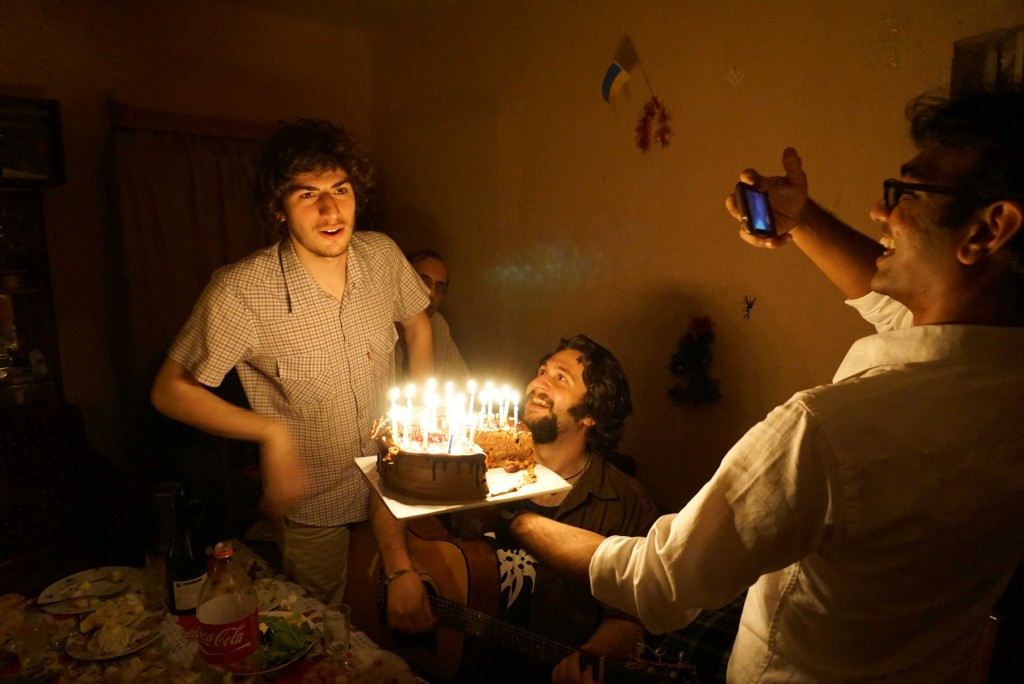
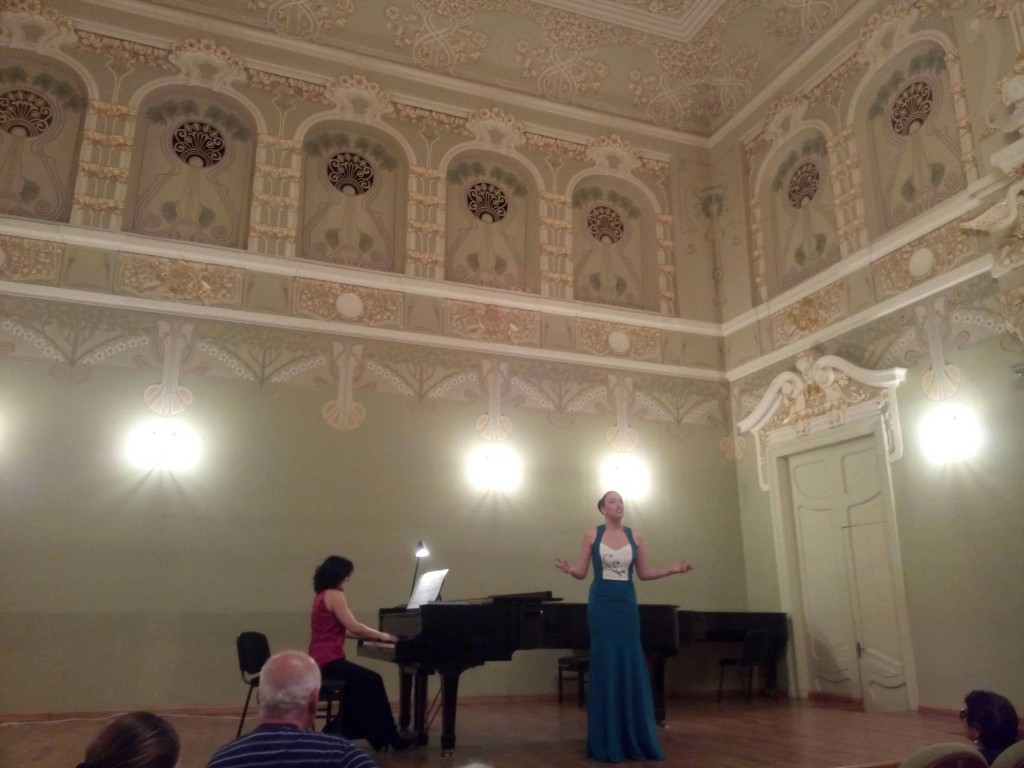
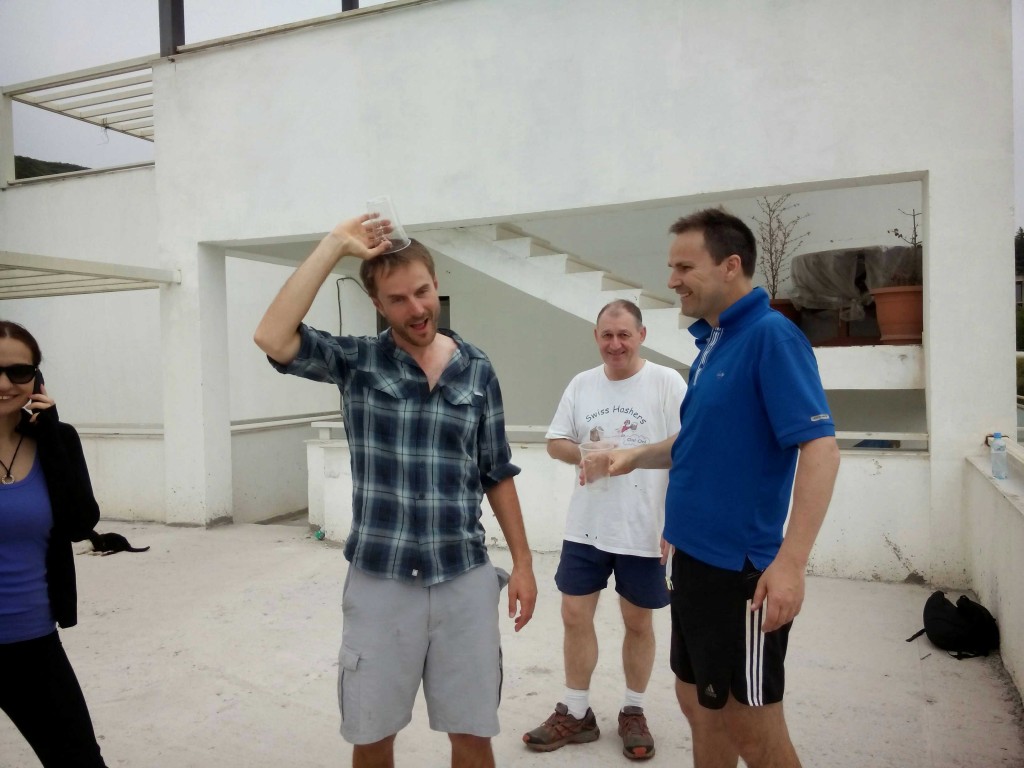
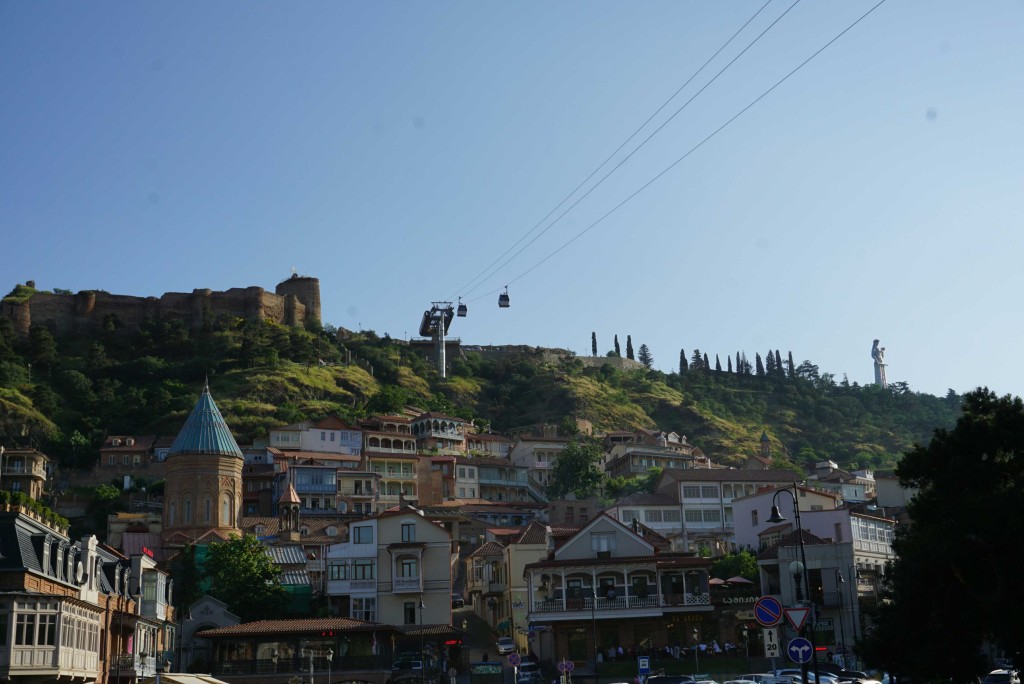
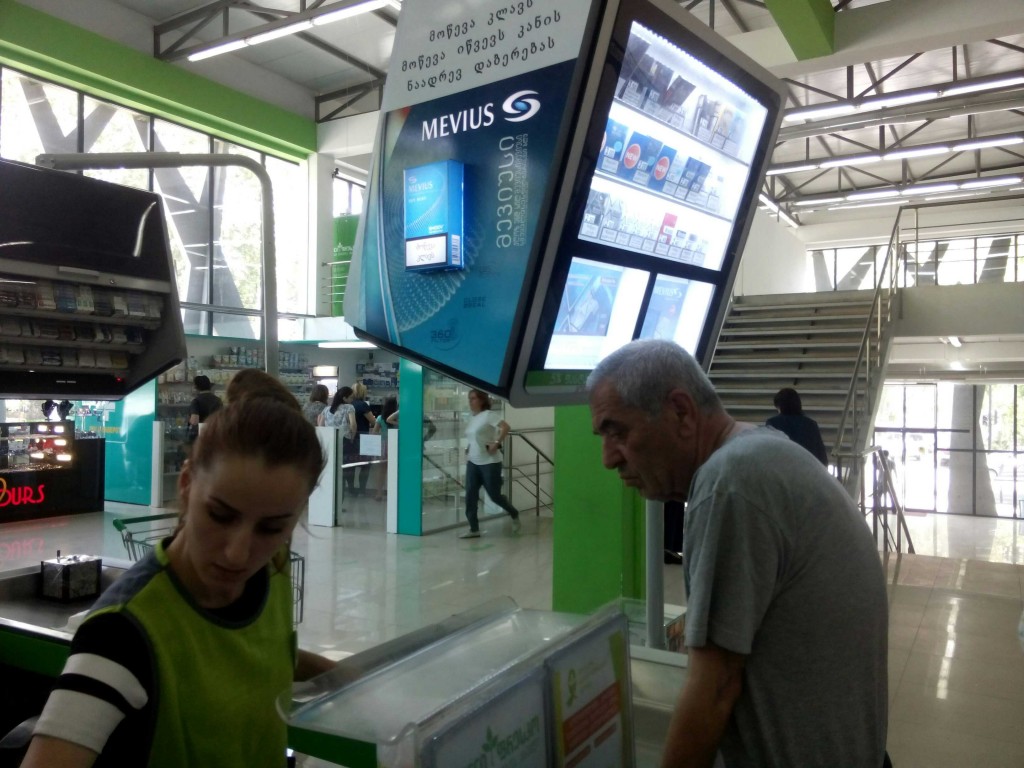
With my sights now set on Baku, I progressed over the hilly roads towards the border with Azerbaijan near Lagodekhi. After a three week lay off it was perhaps a little ambitious to crank out a 120km day over a 1600m pass straight out of the blocks, and it took its toll. The second evening out of Tbilisi I bumped into Shakhyn – almost literally. Evidently of the Ivor Cutler school of ‘how to make a friend’ (but presumably short of a bucket of whitewash), Shakhyn’s approach was to run me off the road with his Lada 1500 before offering to put me up for the night at his family home 30km up the road. When I eventually found my way into Kabali, running on vapour, it turned out that there was still further to go, so I followed behind Shakhyn’s trusty Lada spewing diesel fumes for several miles to a small village of ethinically Azerbaijani people. The hospitality was as excellent as ever and despite a considerable communication barrier (entirely my failing for not speaking any of the four languages that Shakhyn had) we talked late about family and life in England. For some reason I did not sleep a wink that night (the heat, the village noises…), so was reduced to a slow slog over the easy miles next morning, Shakhyn’s plaintive ‘Call me you’, hanging in the air as I bumped along down the village track towards the Azerbaijan border.
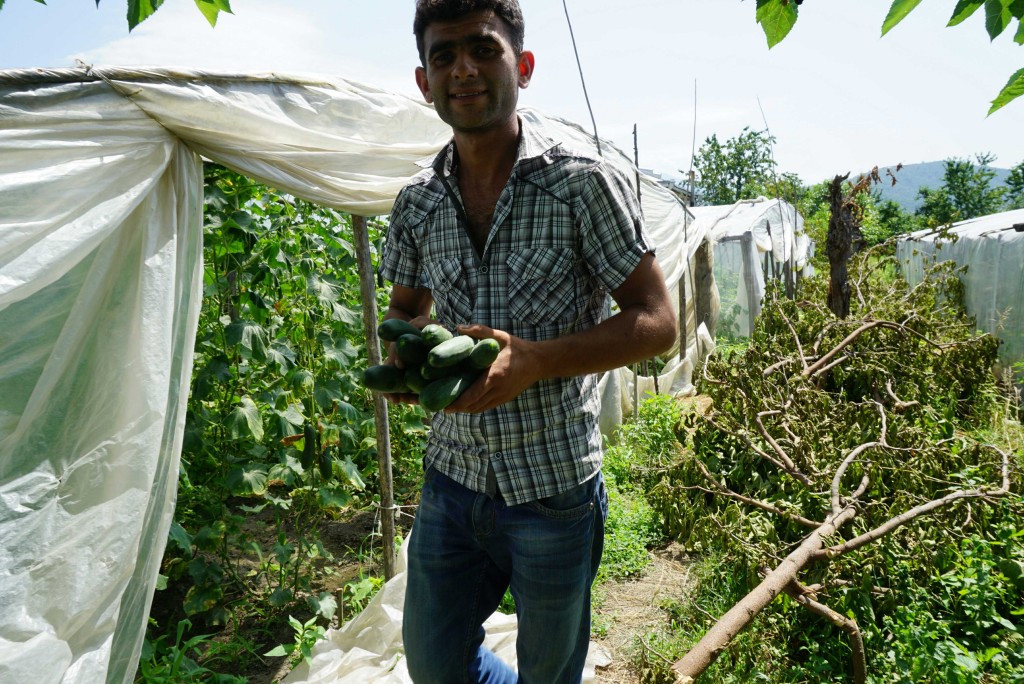
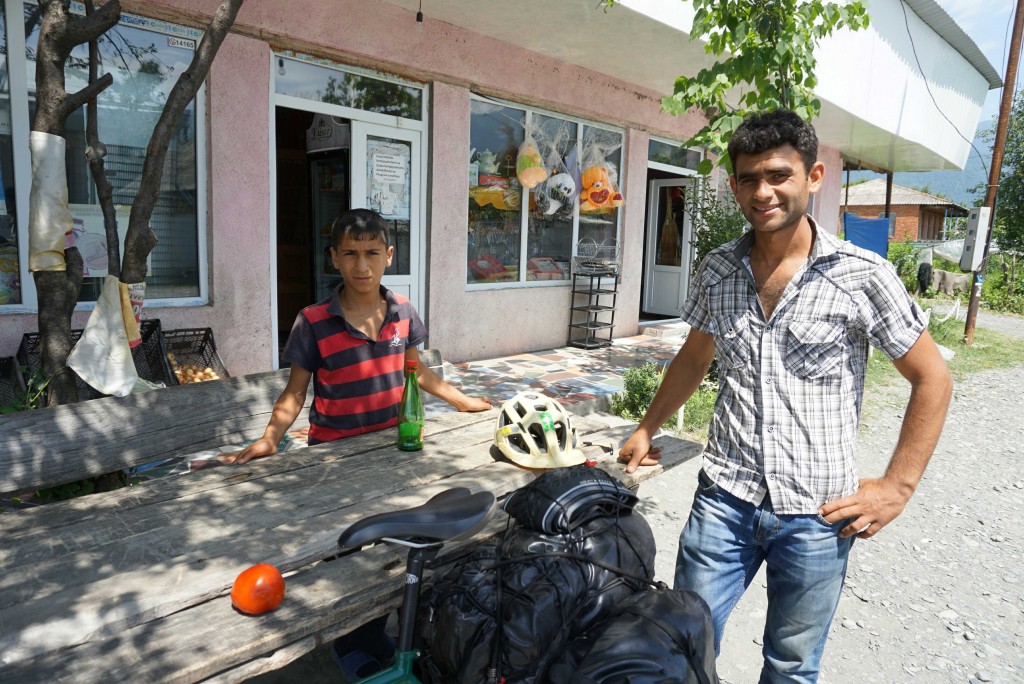
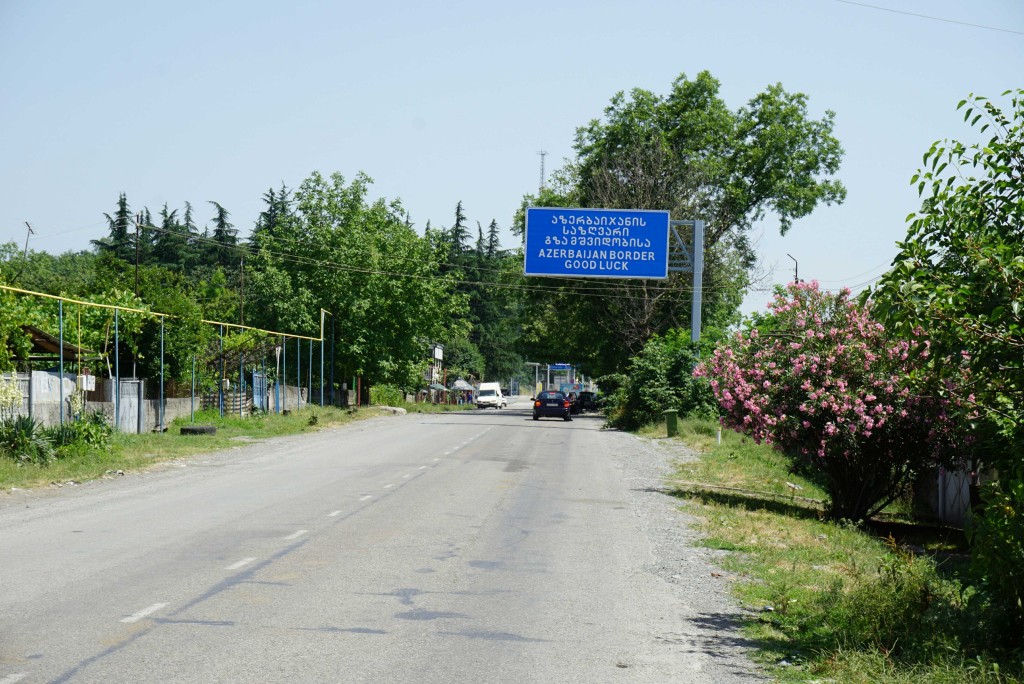
Gaumarjos Georgia. Salaam Azerbaijan.
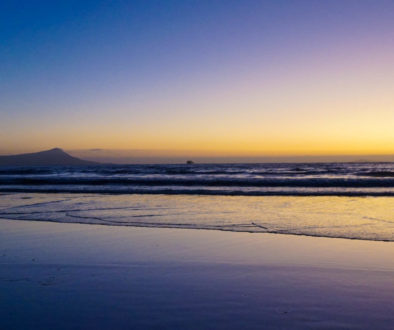
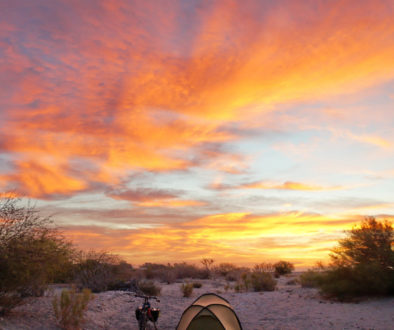
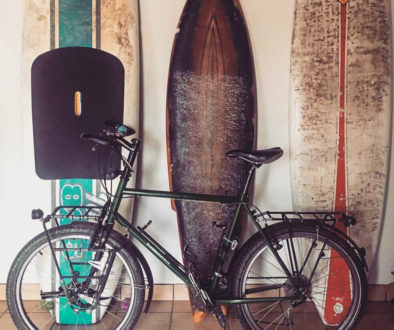
27 June 2015 @ 09:18
A joy to read as usual but get a move on your late for the Pamir Highway dude.